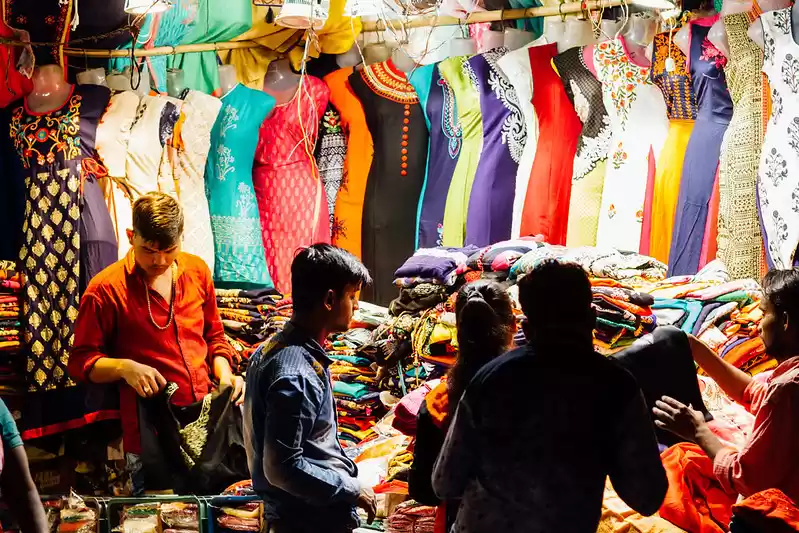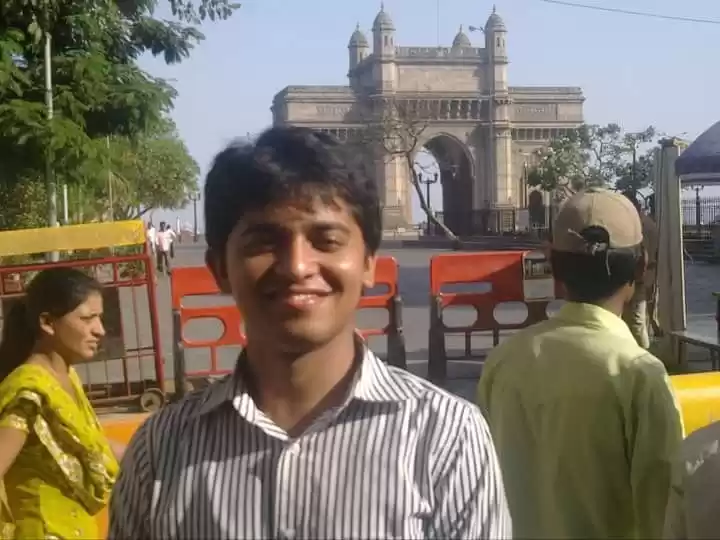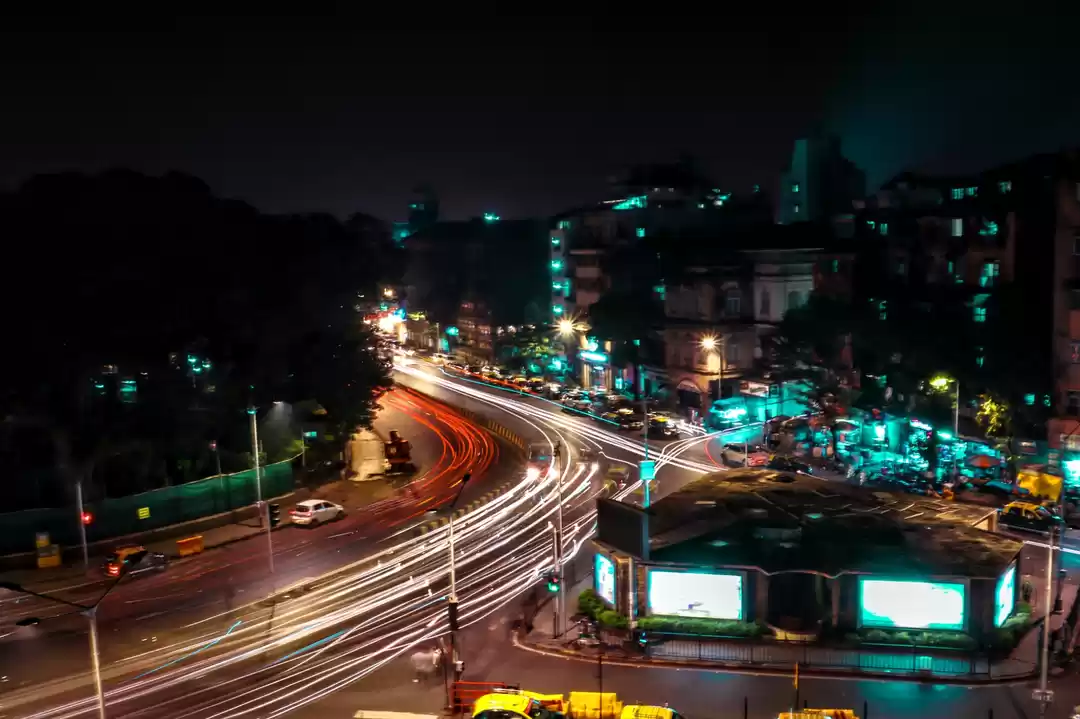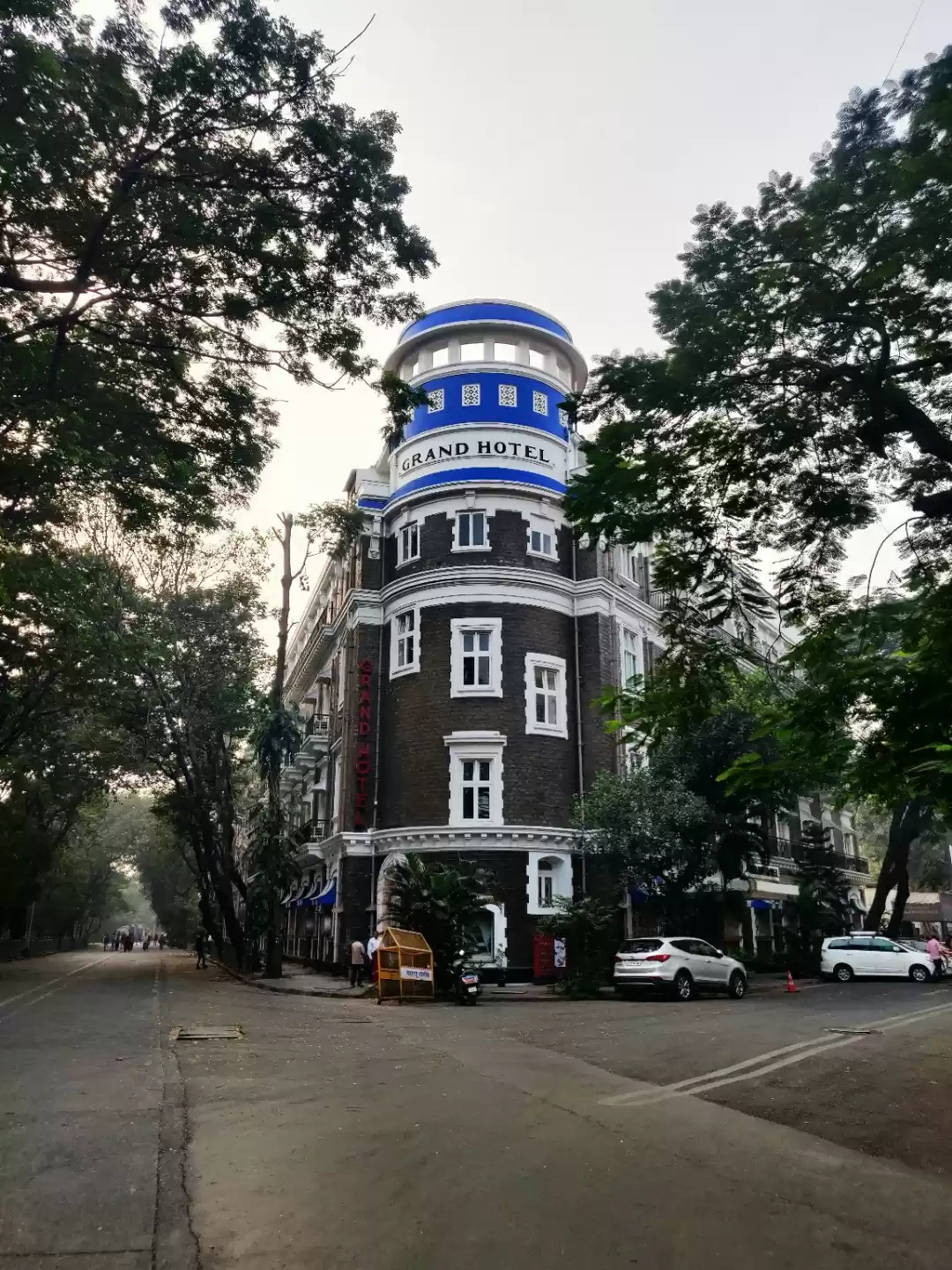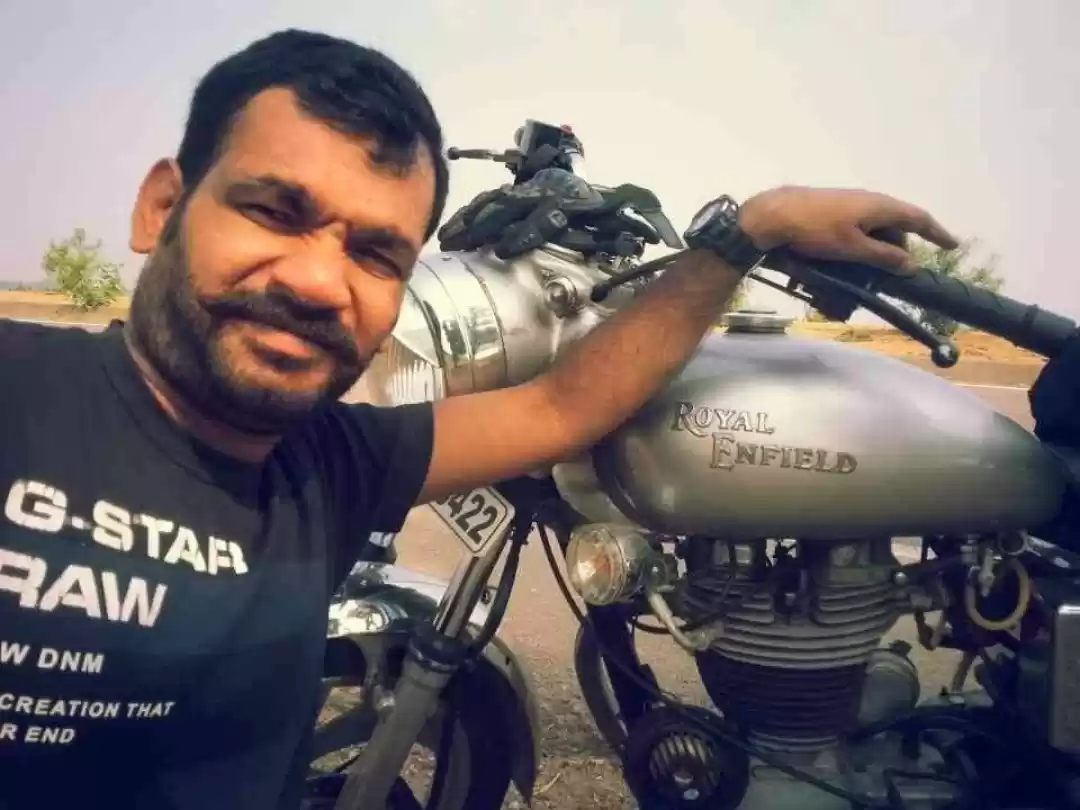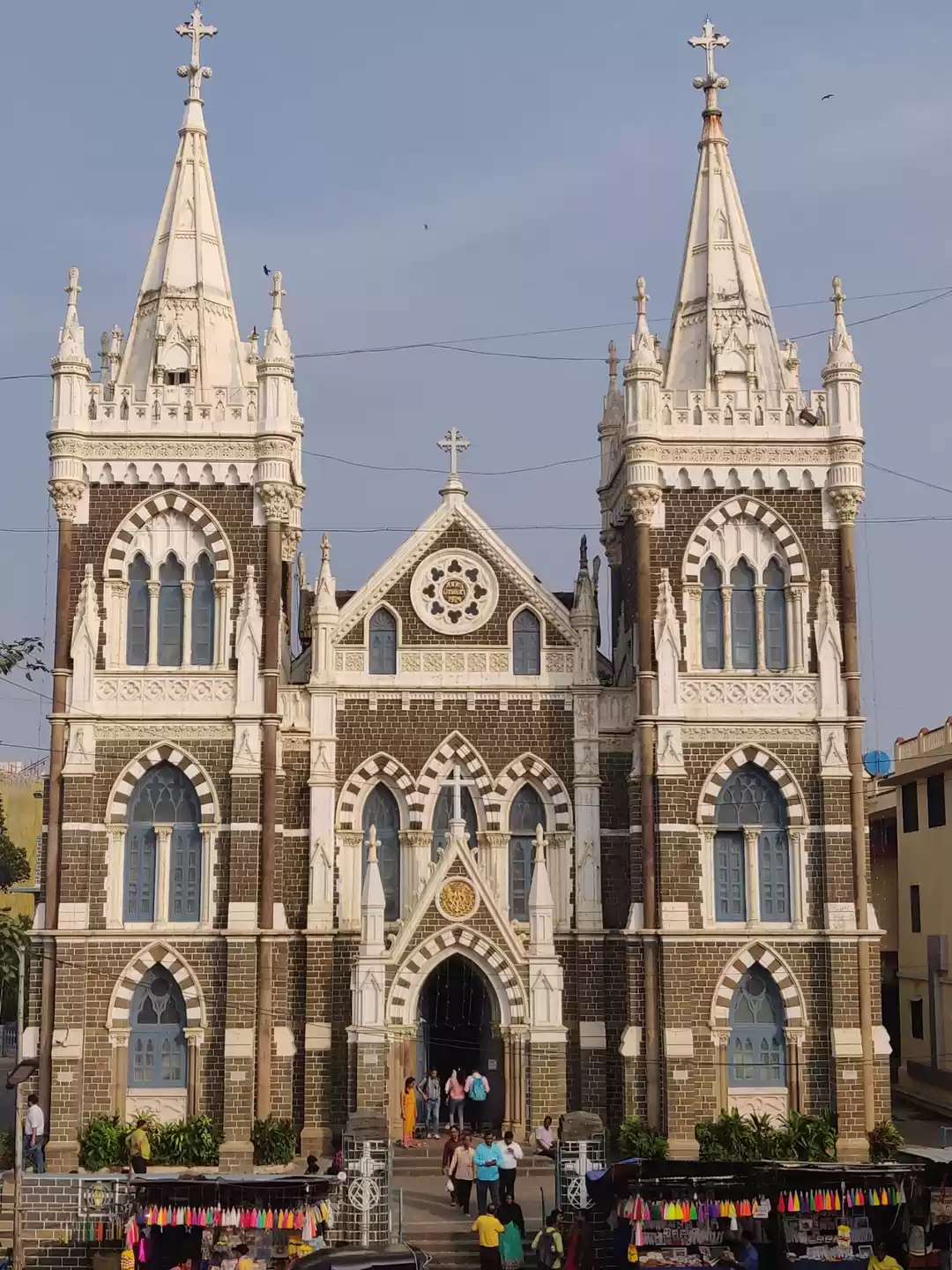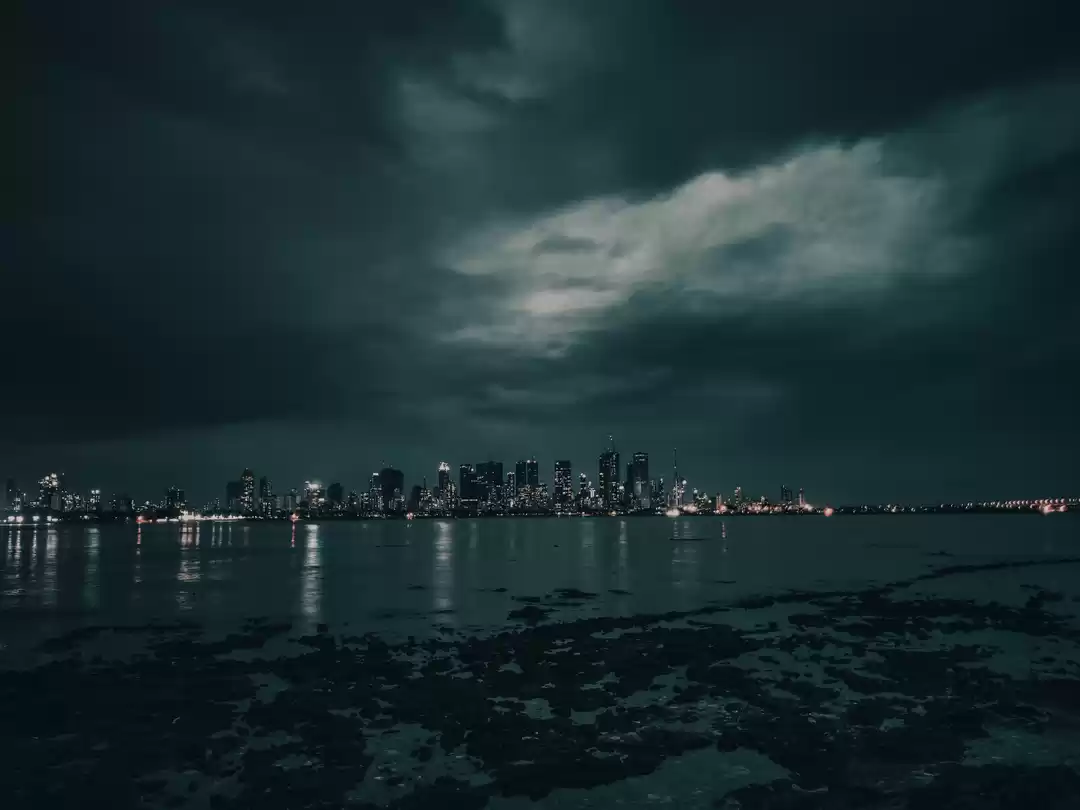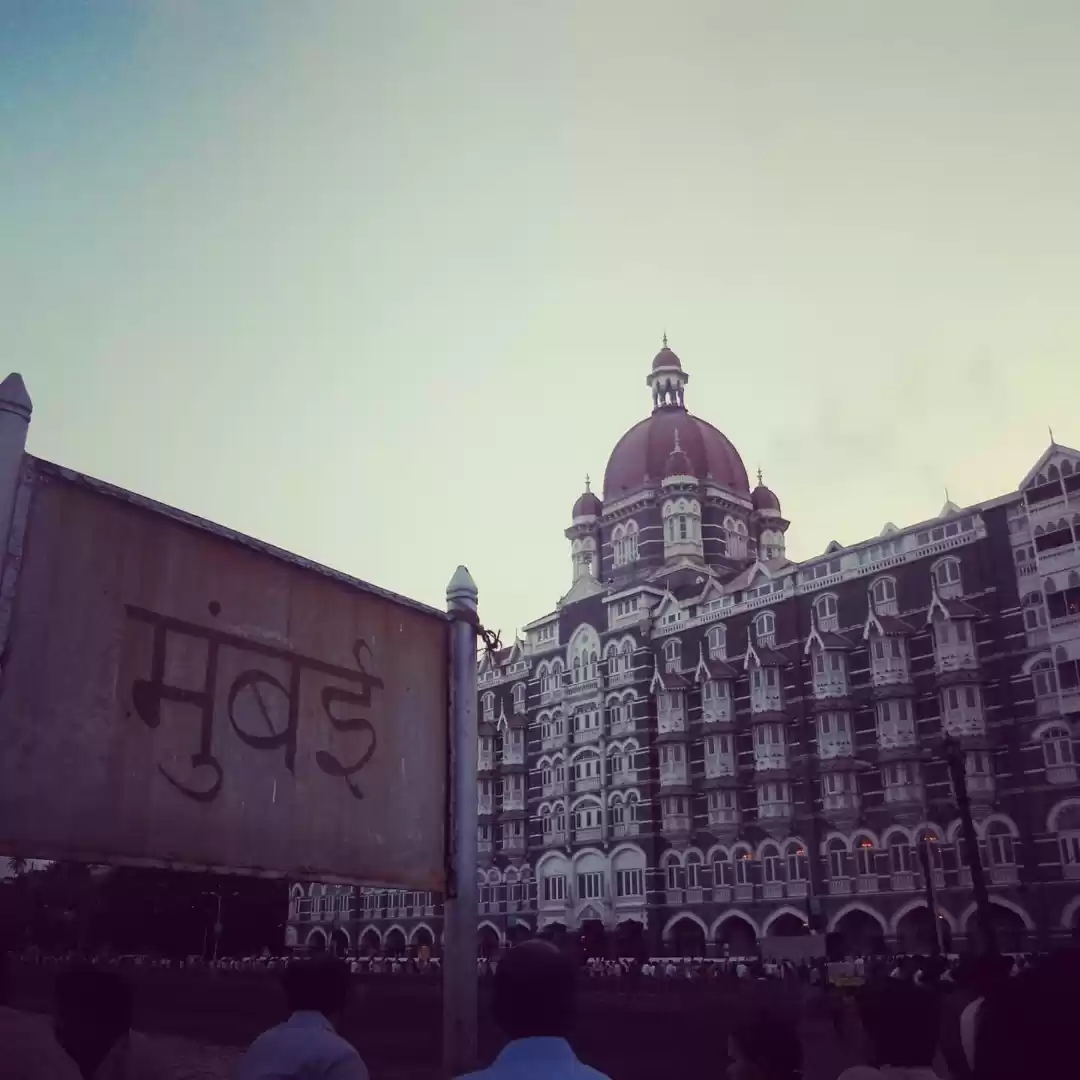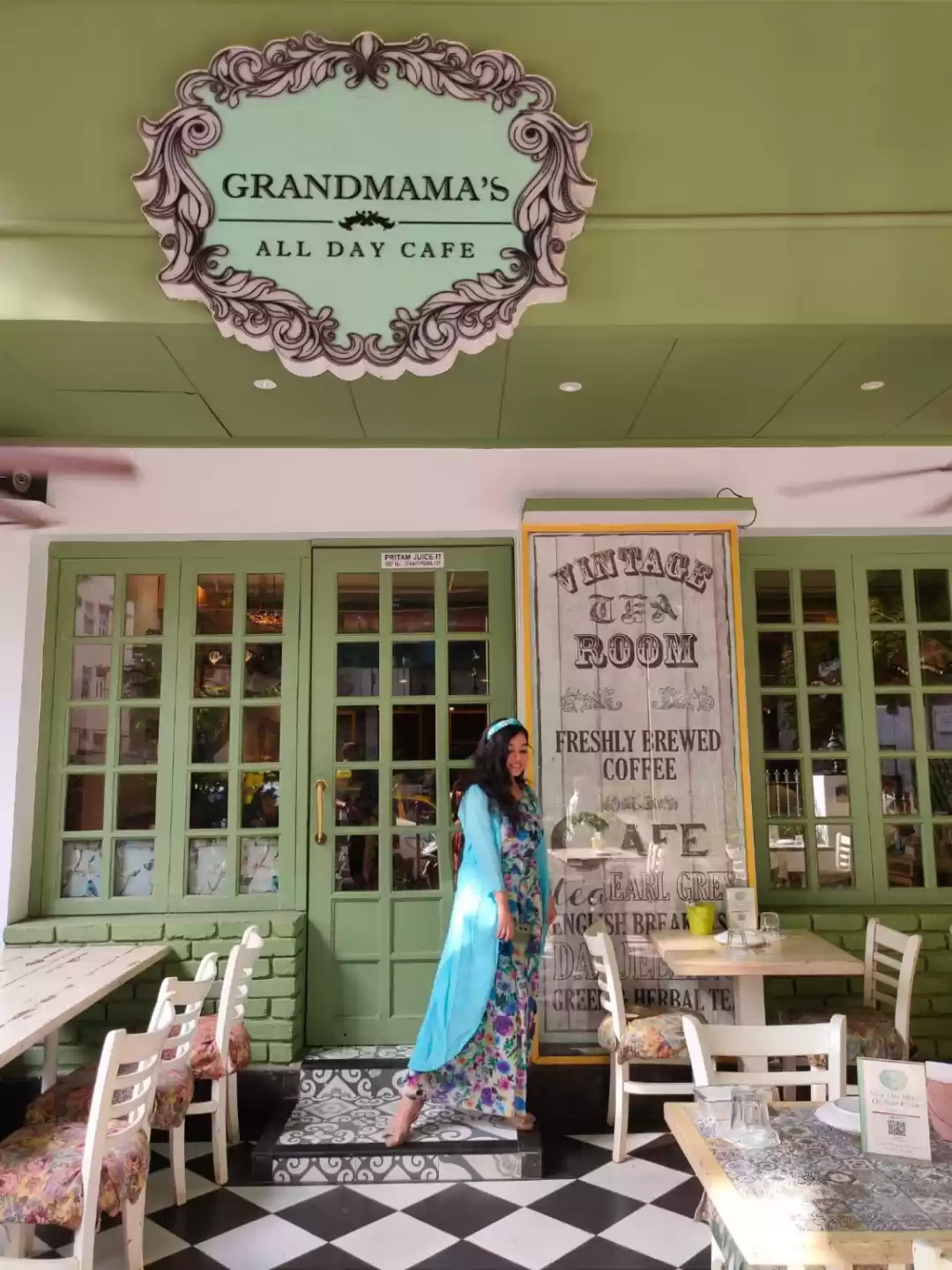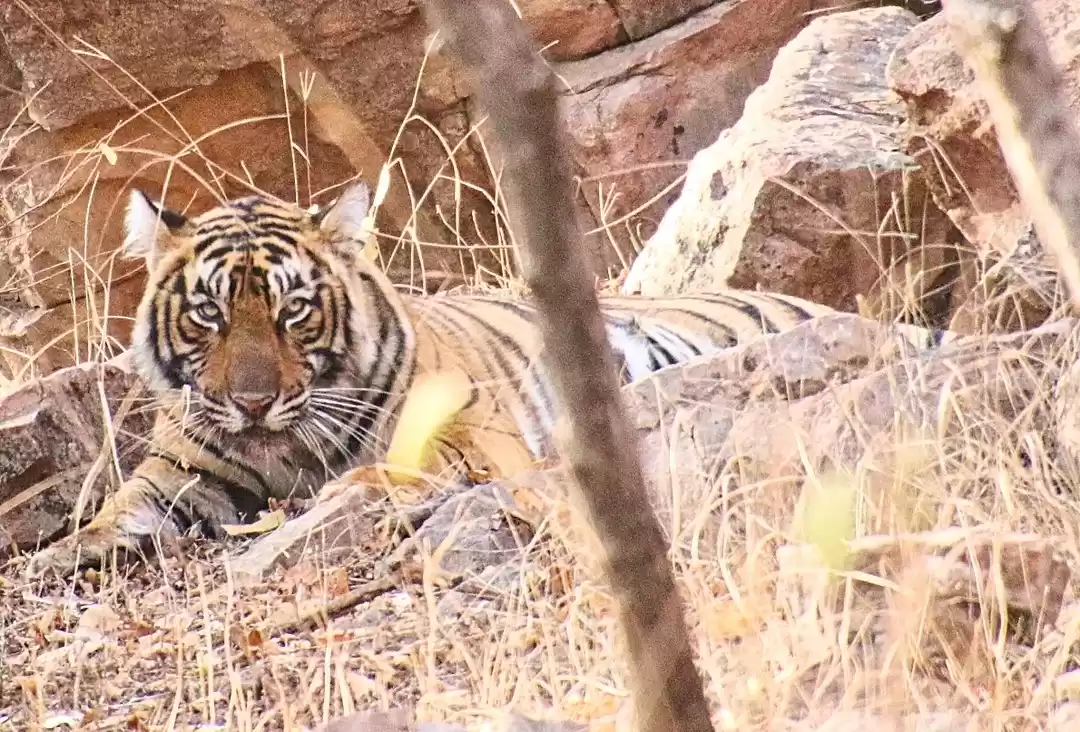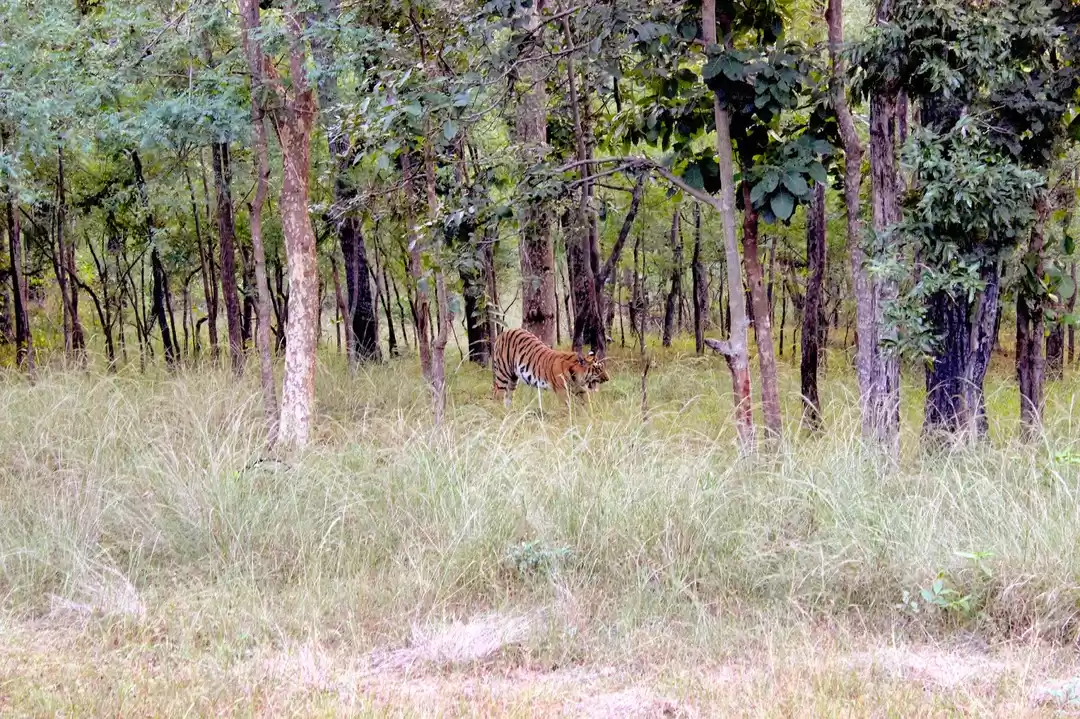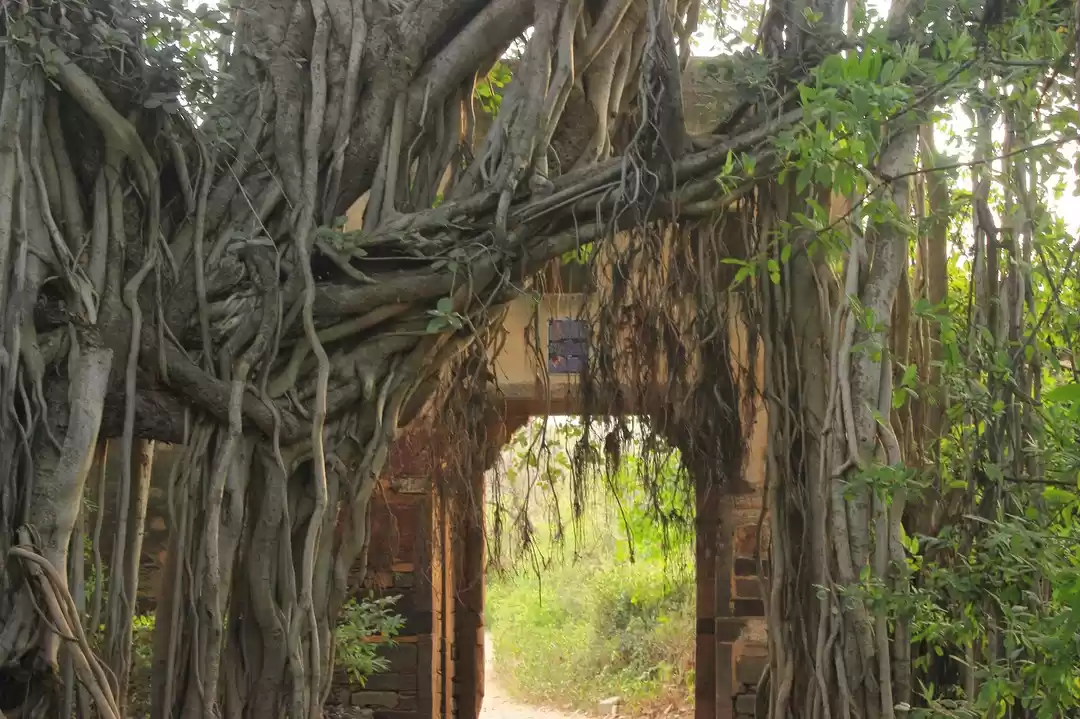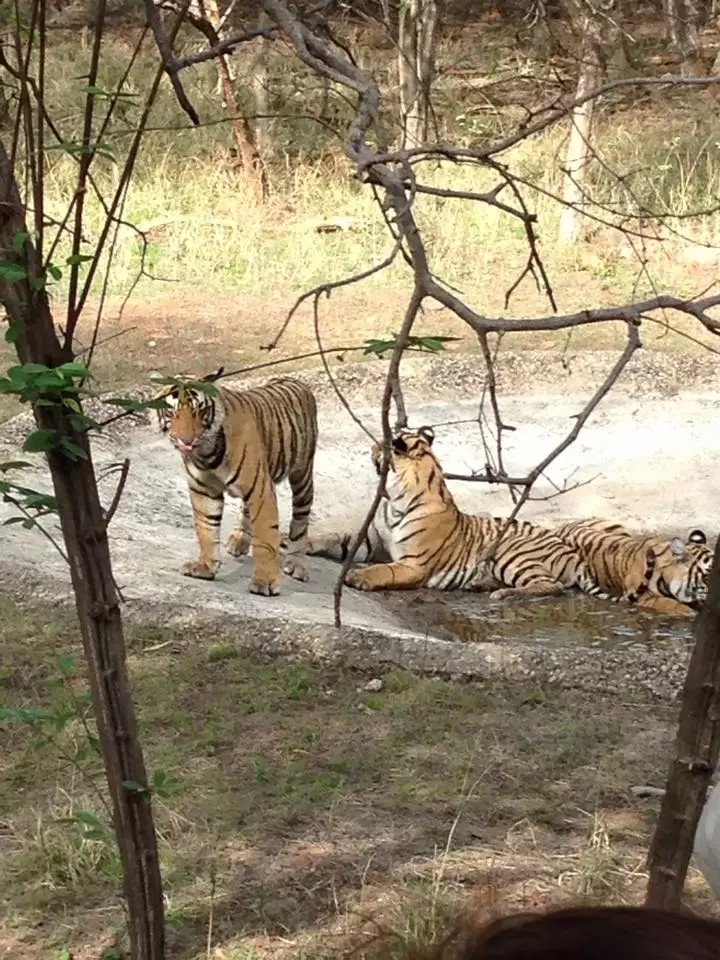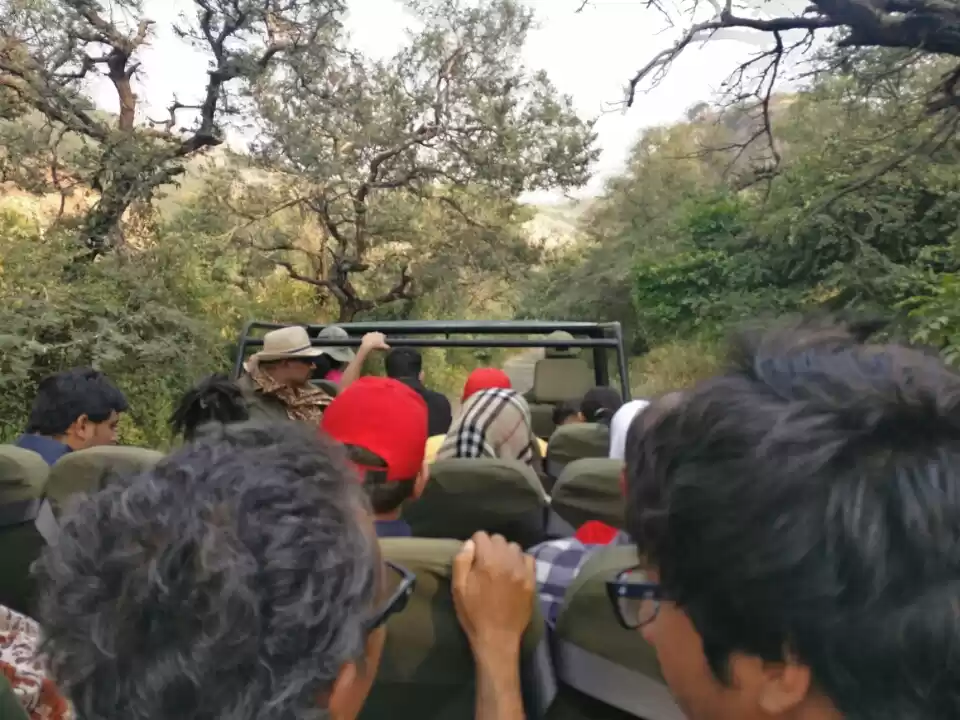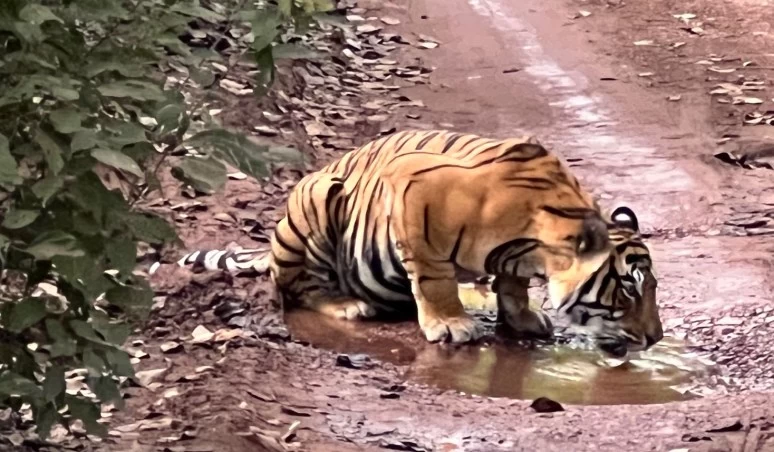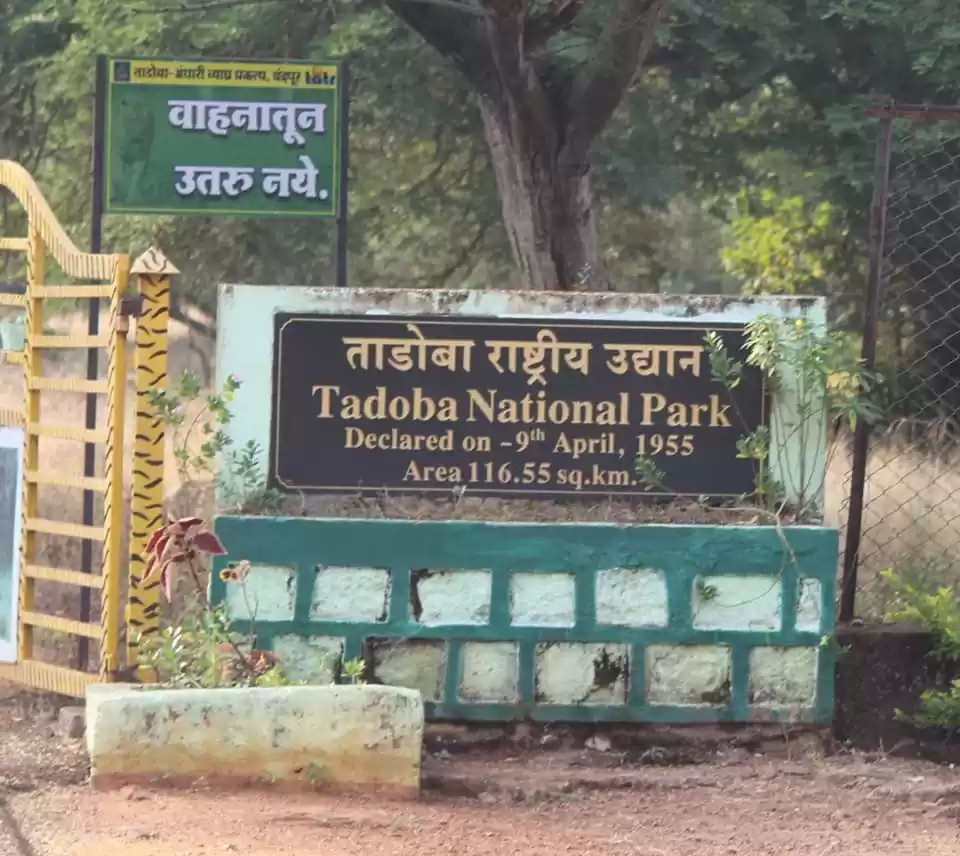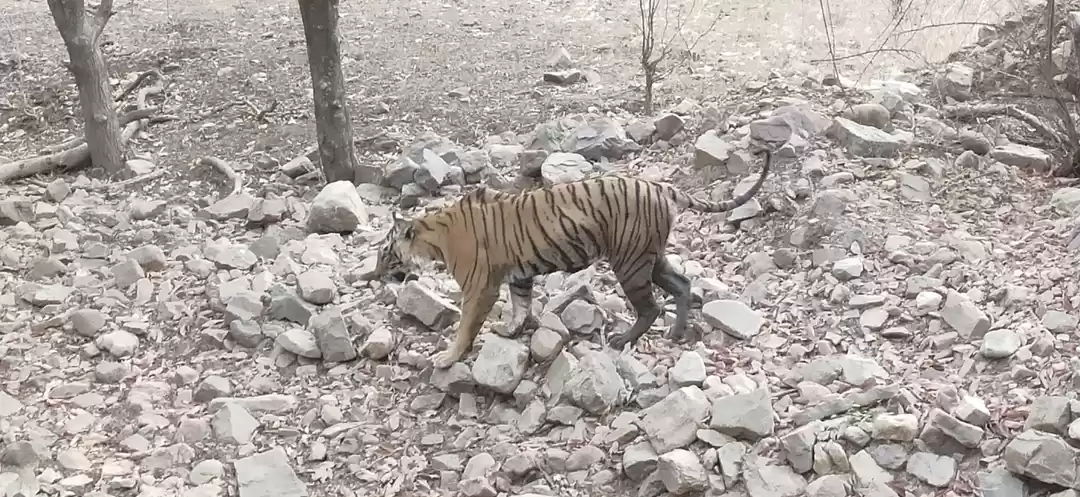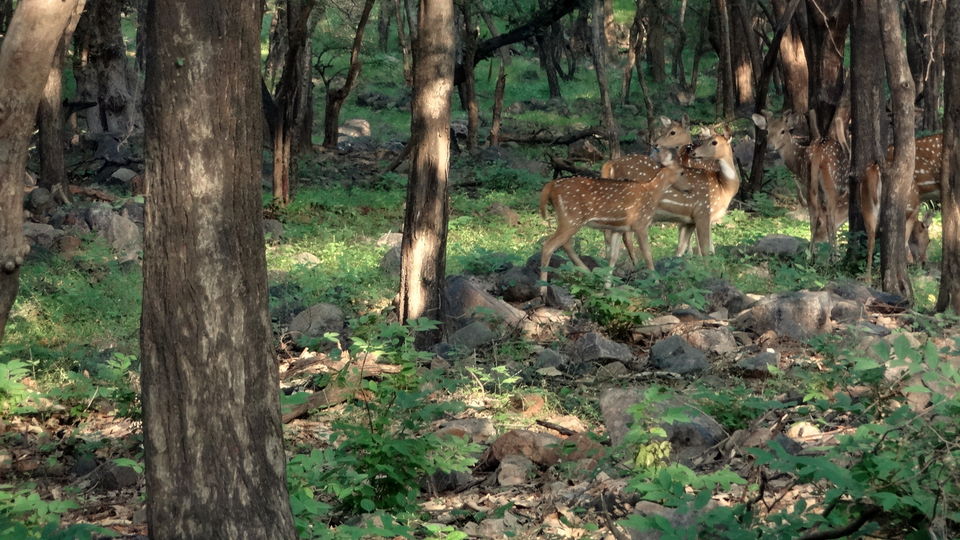
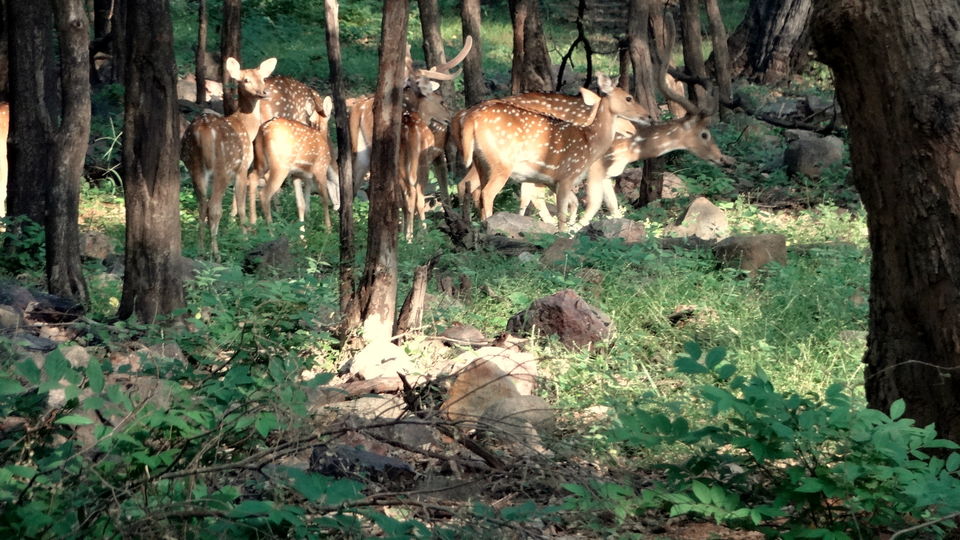
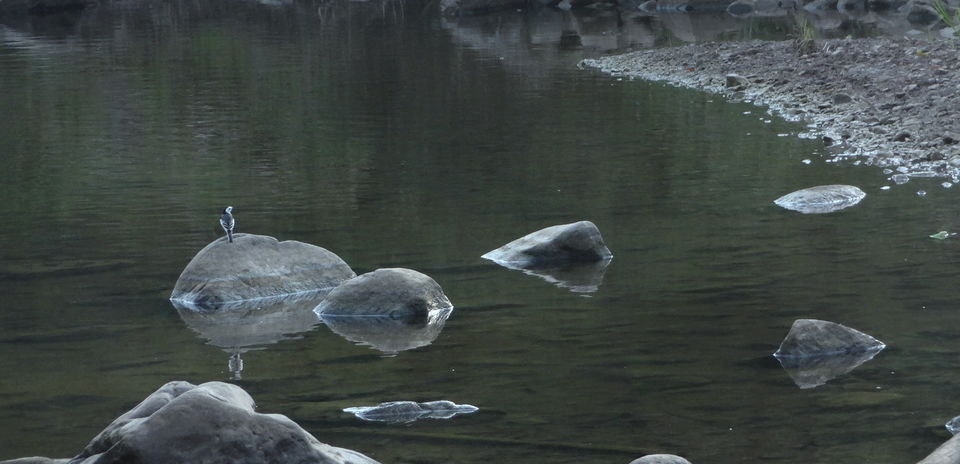
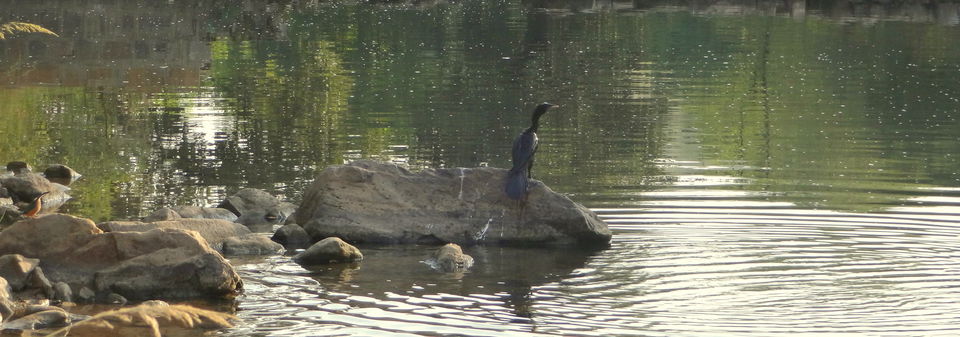
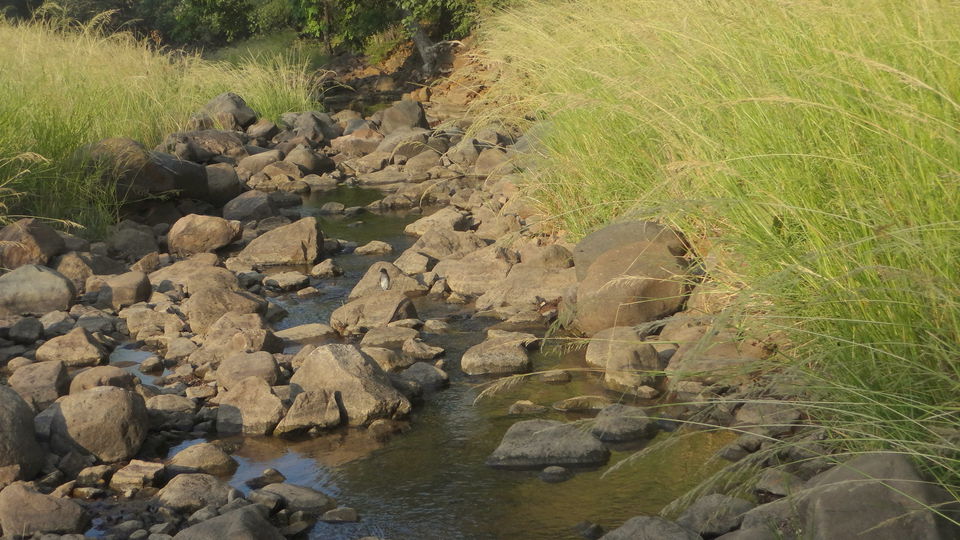
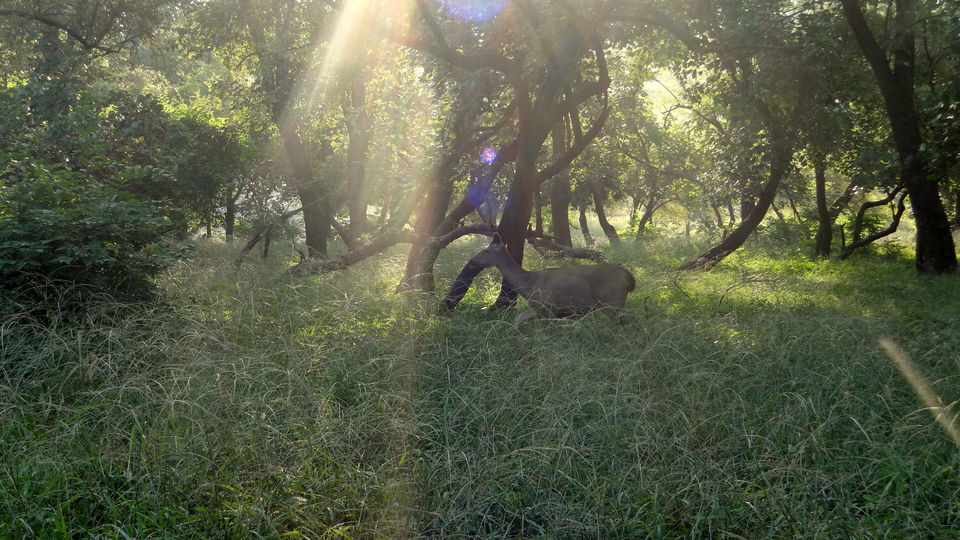
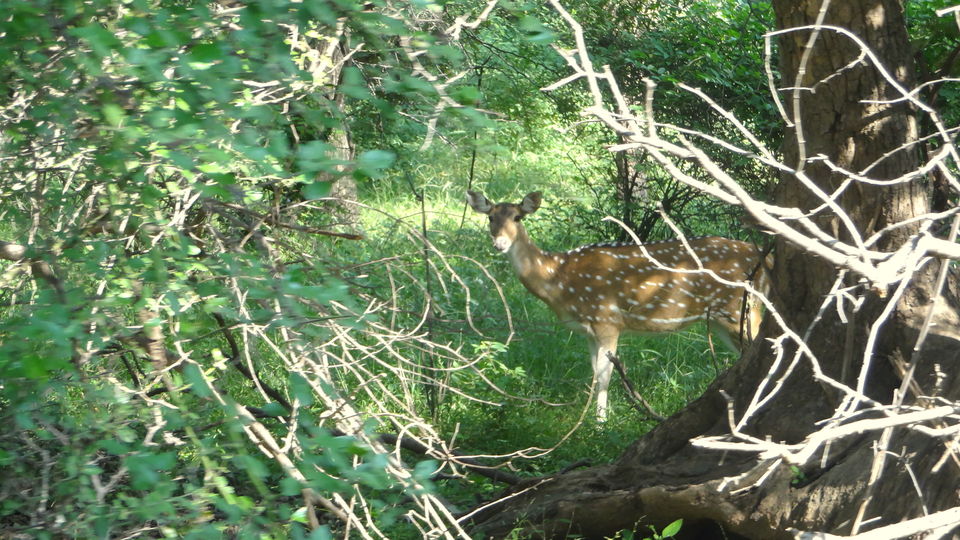
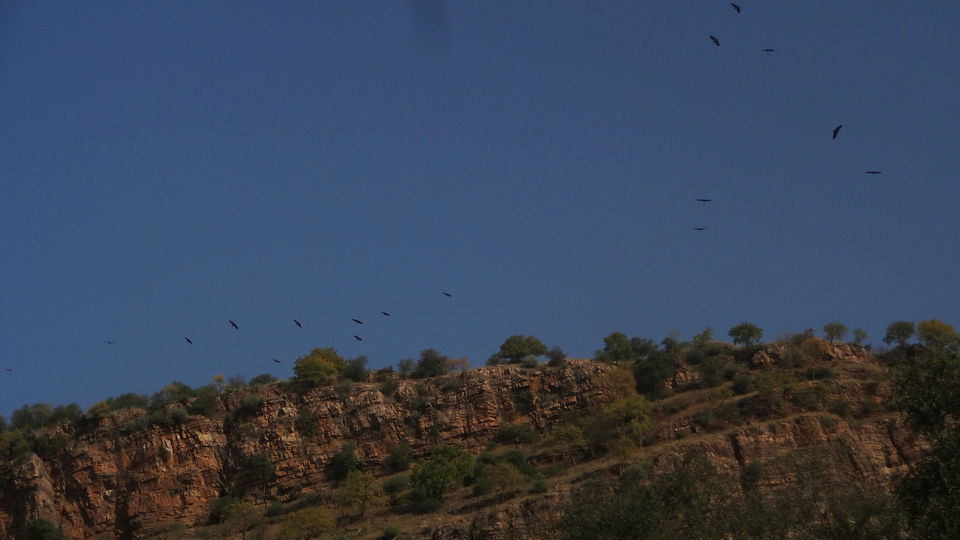
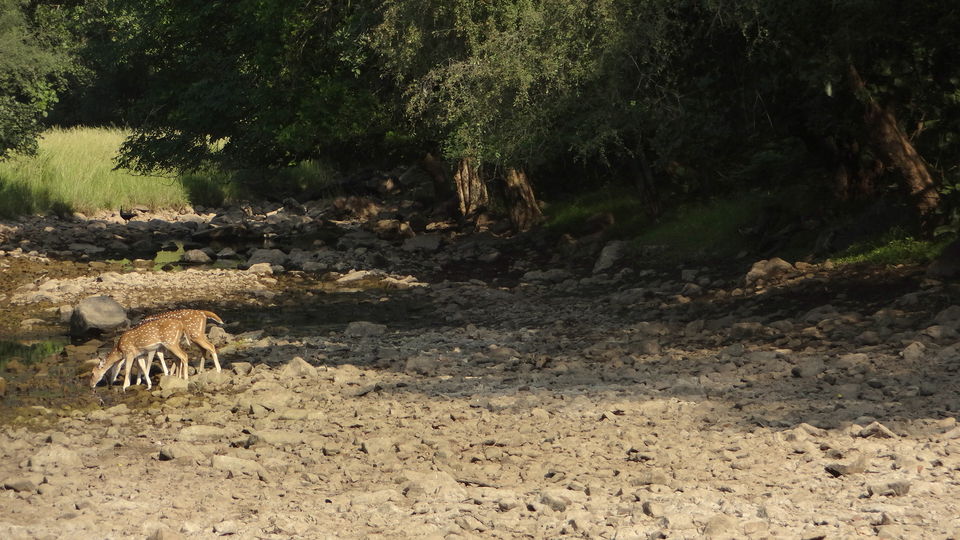
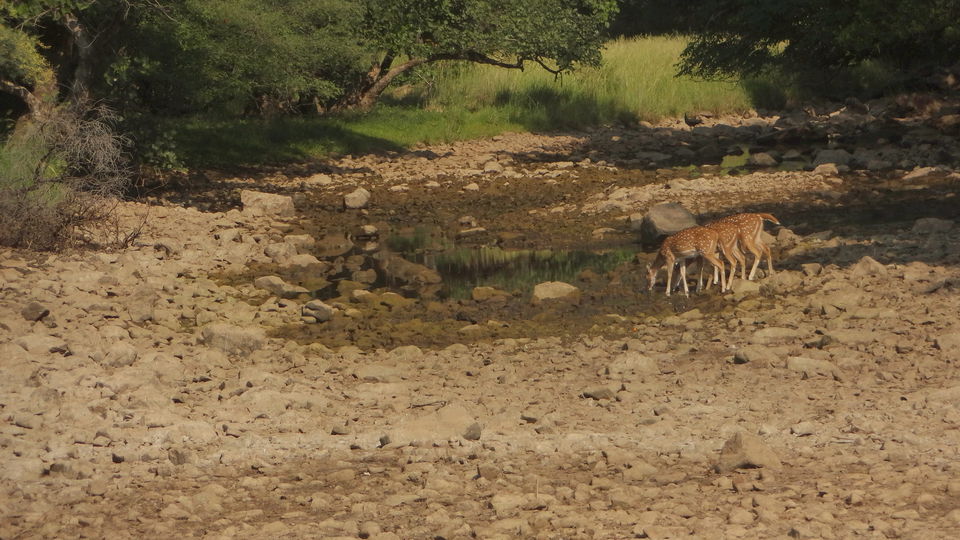
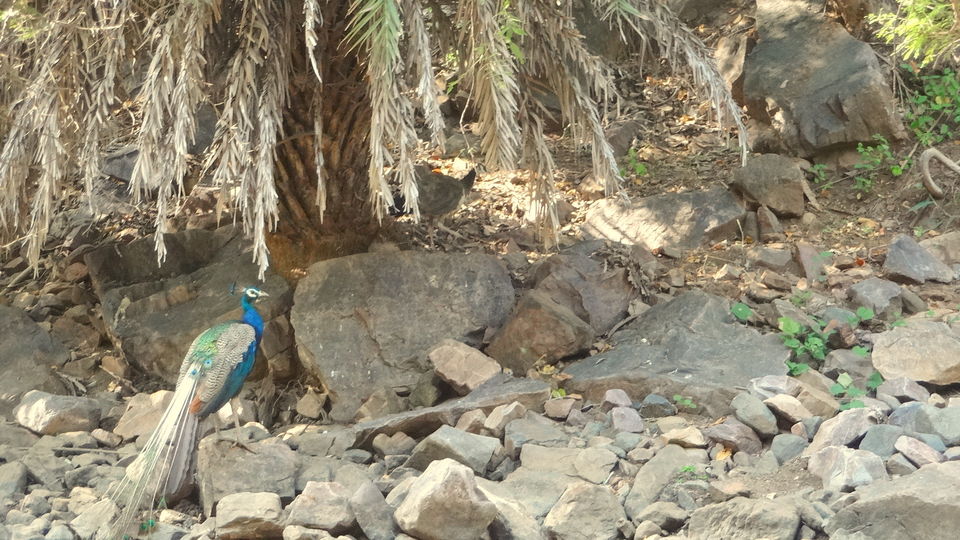
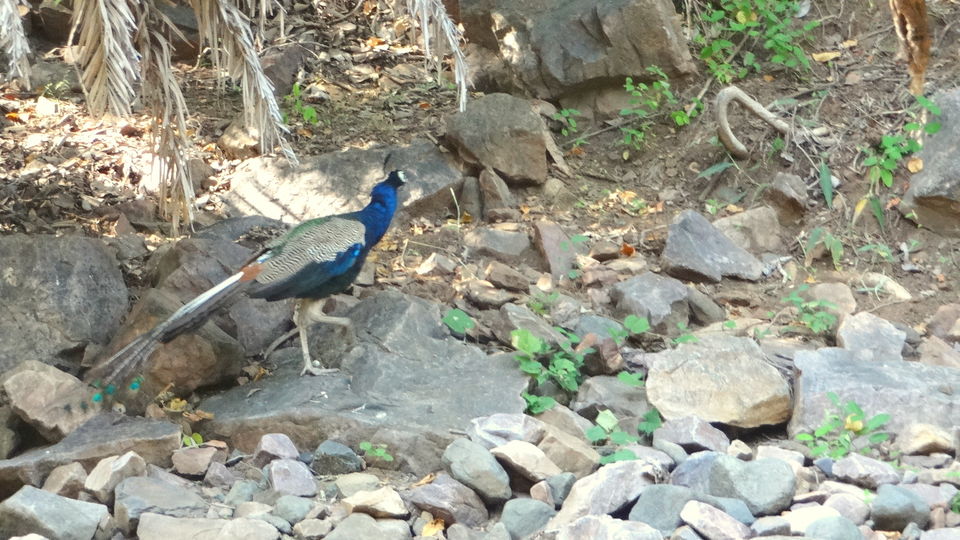
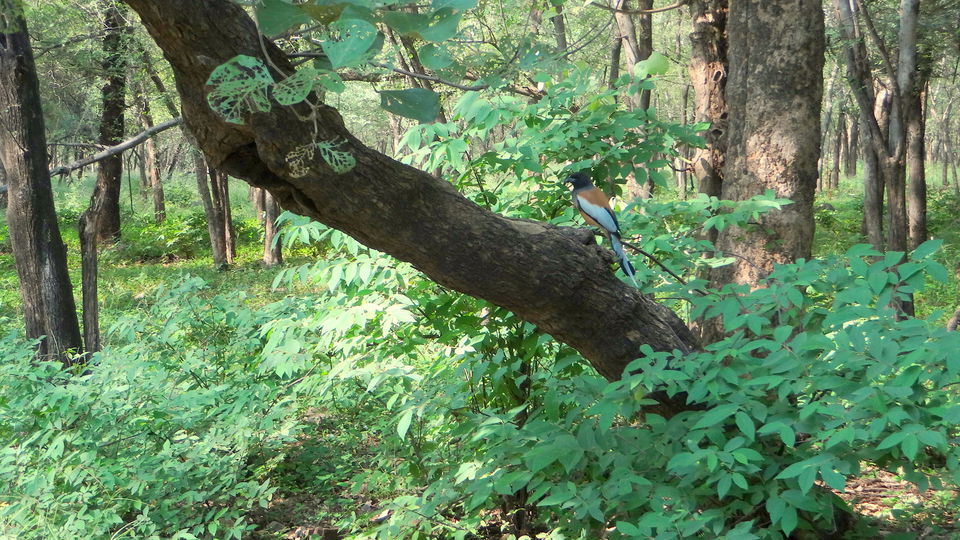
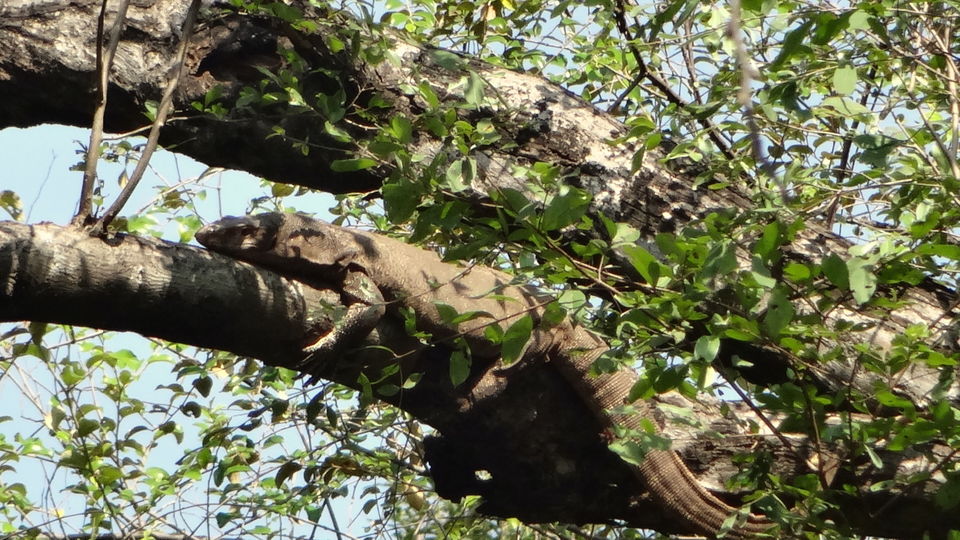
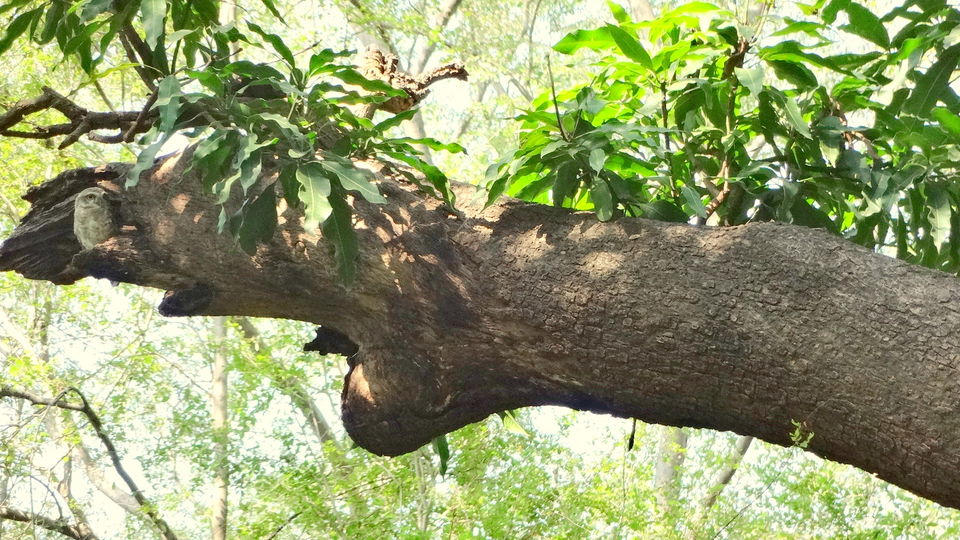
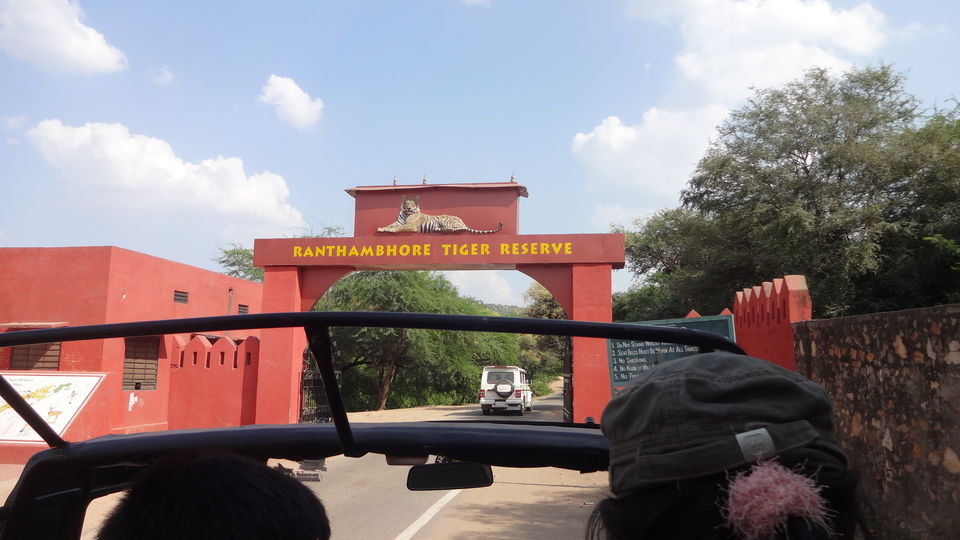
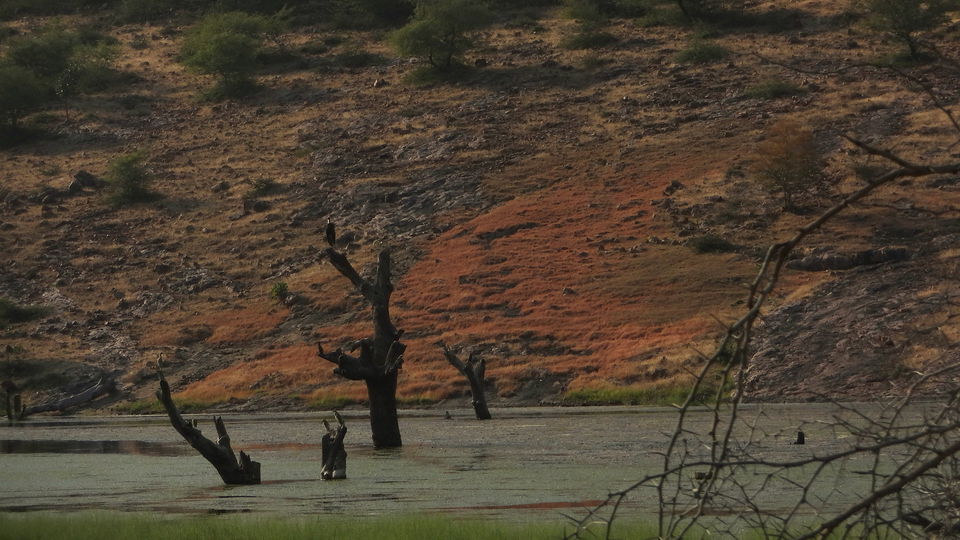
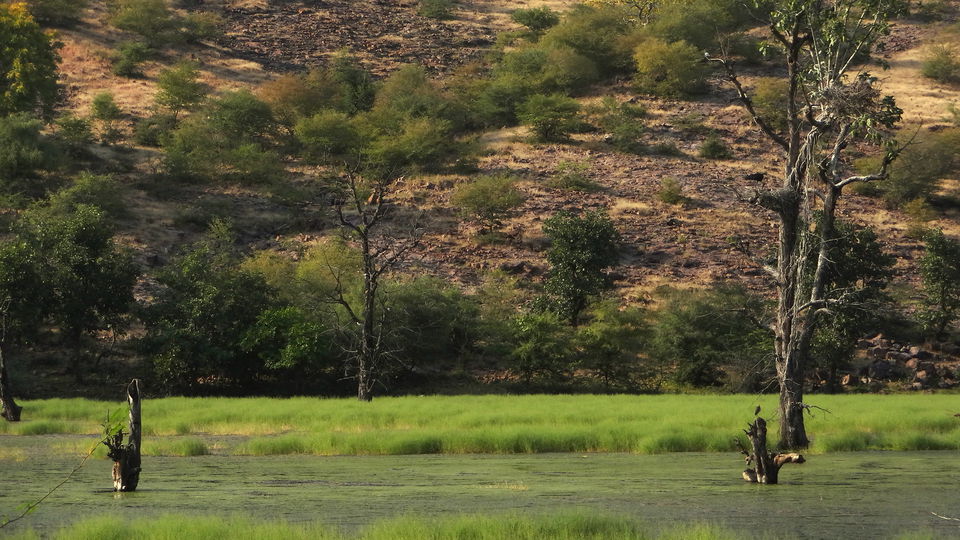
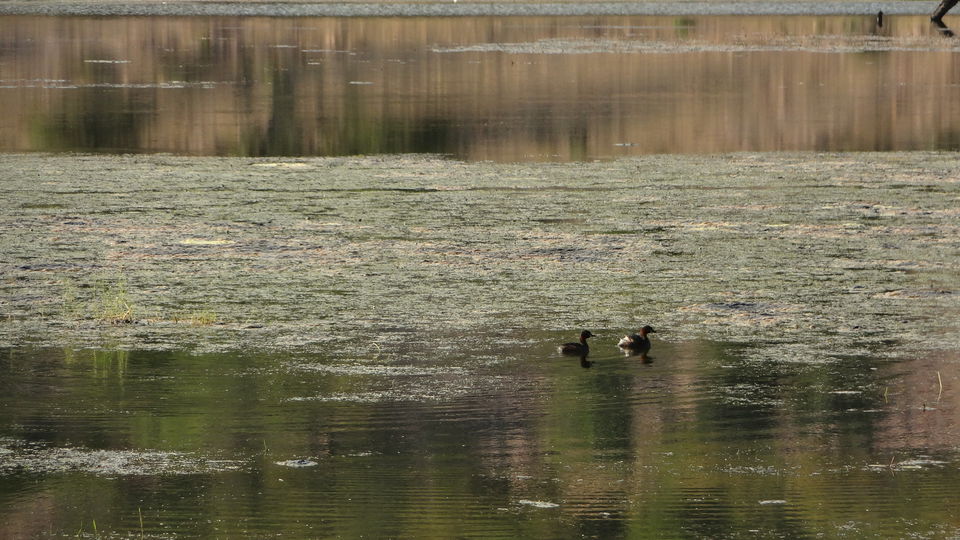
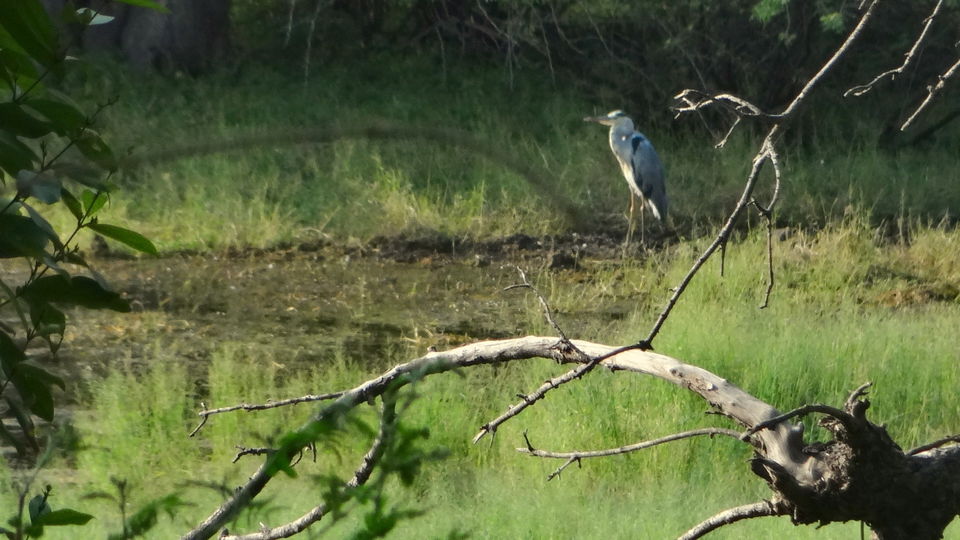
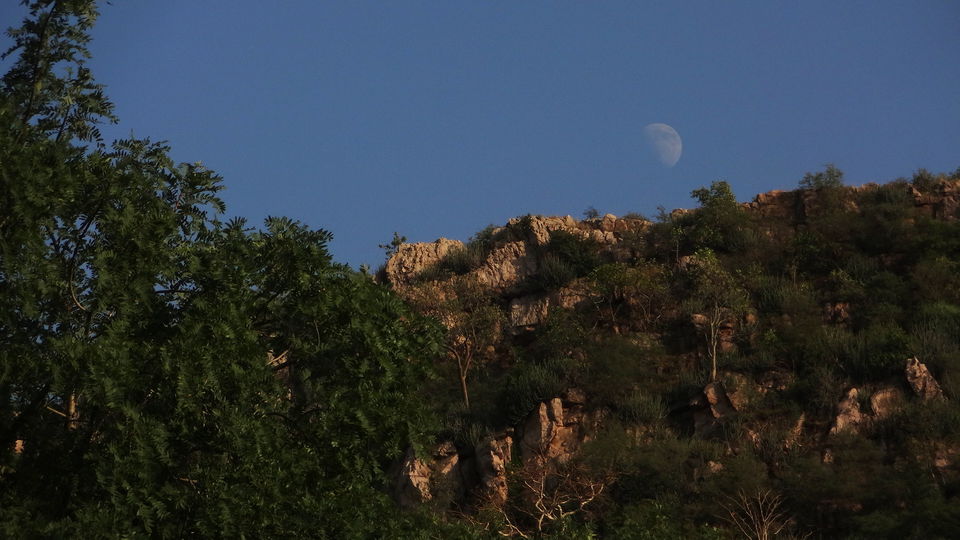
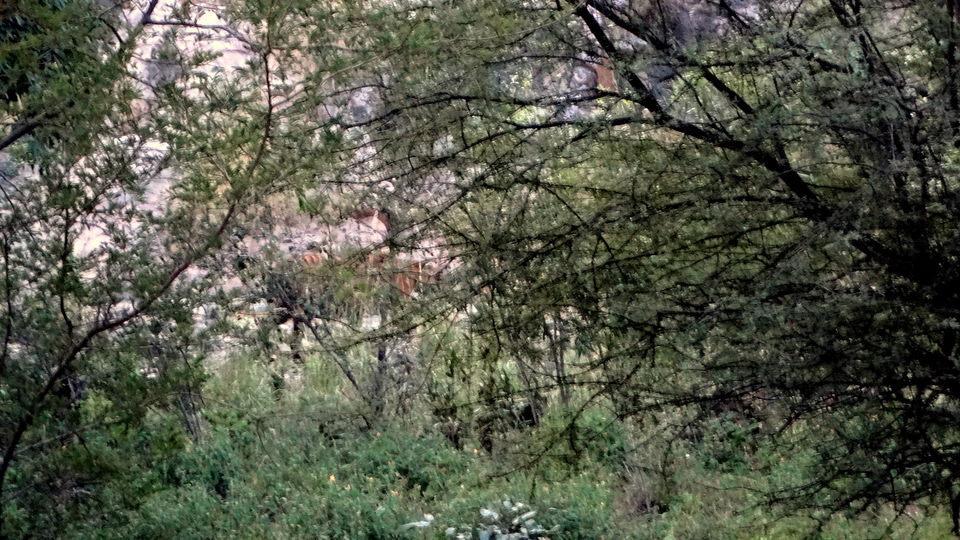
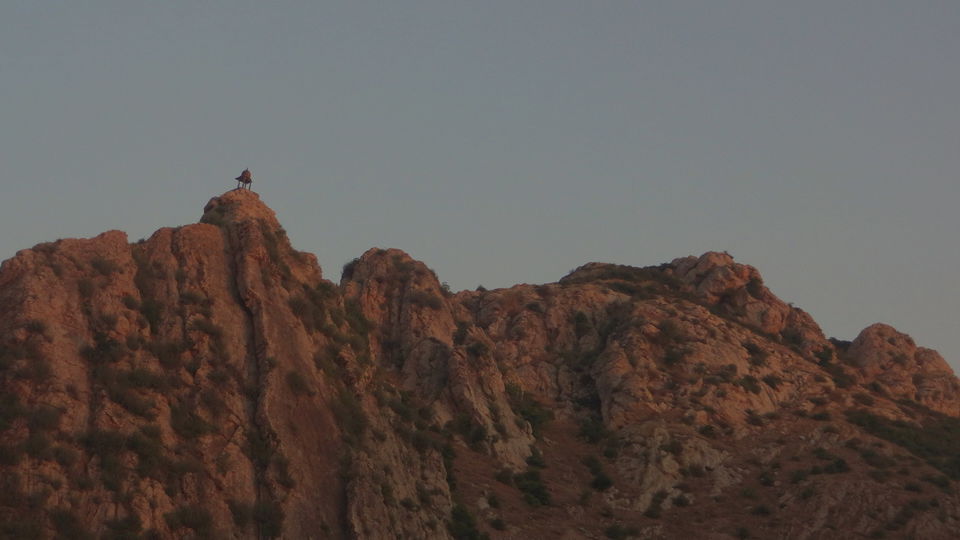
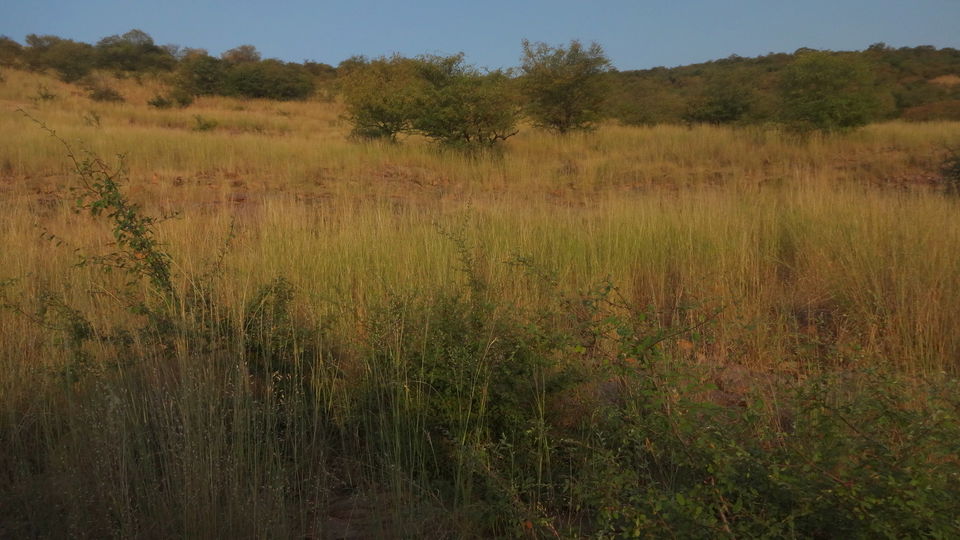
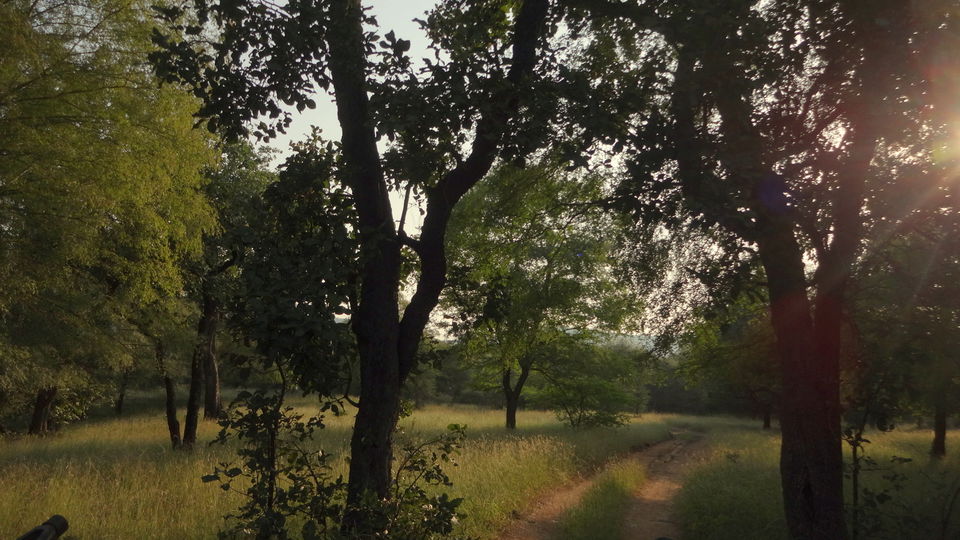
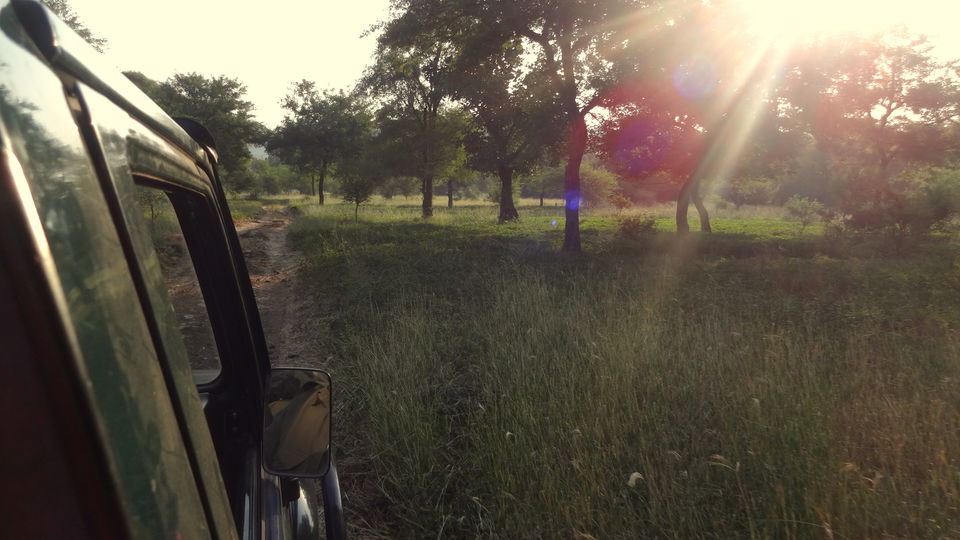
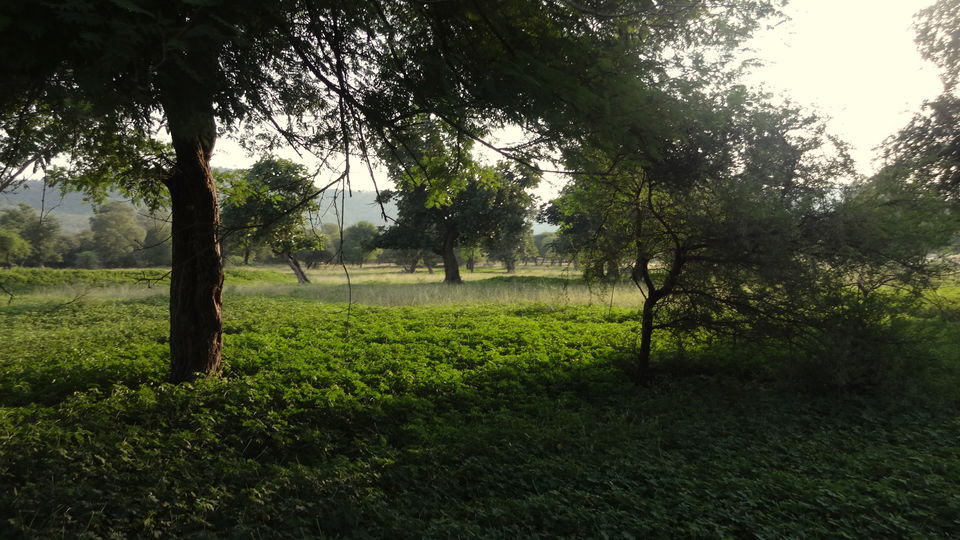

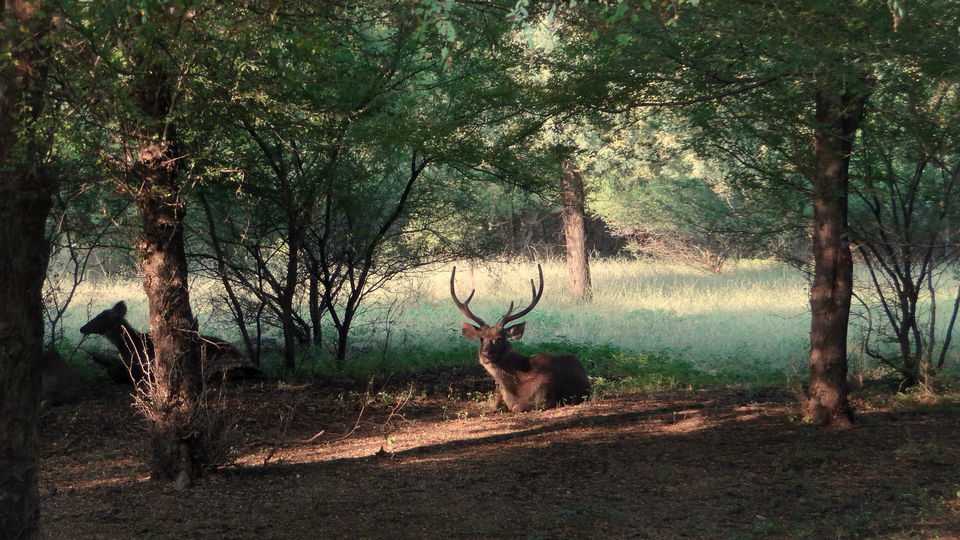
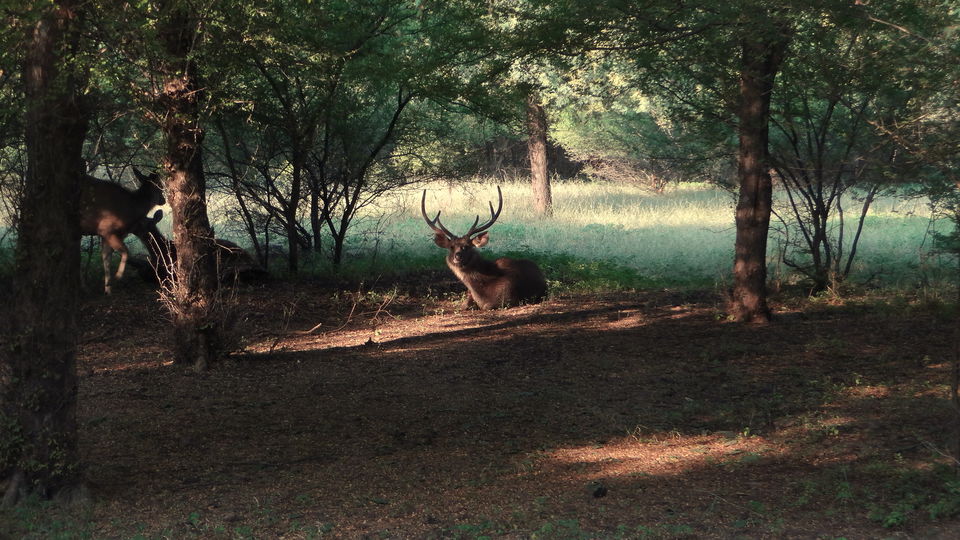
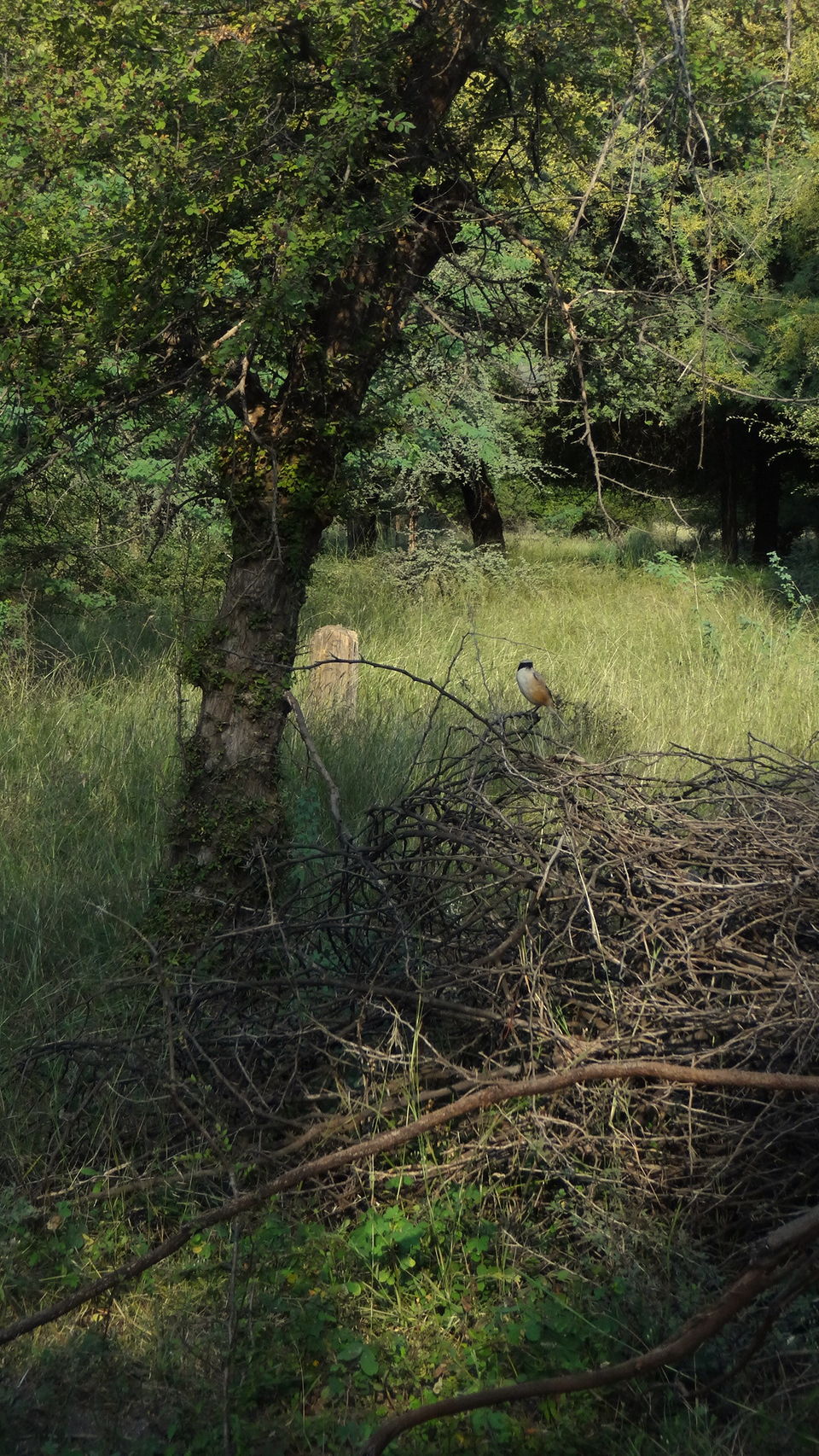
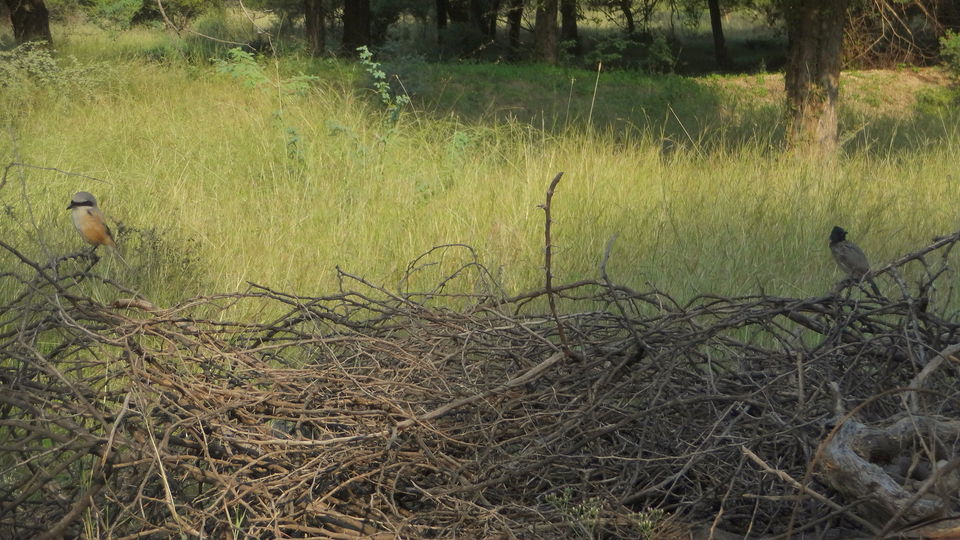
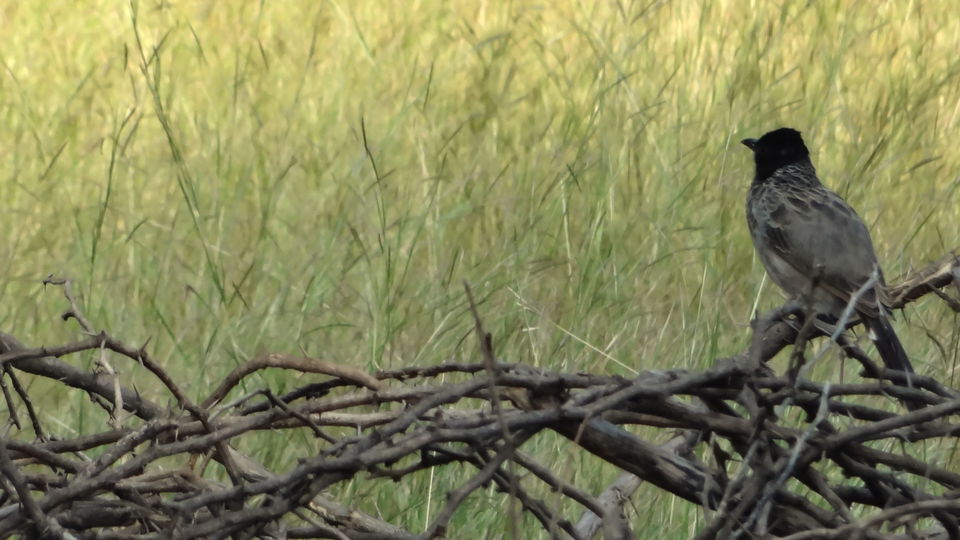
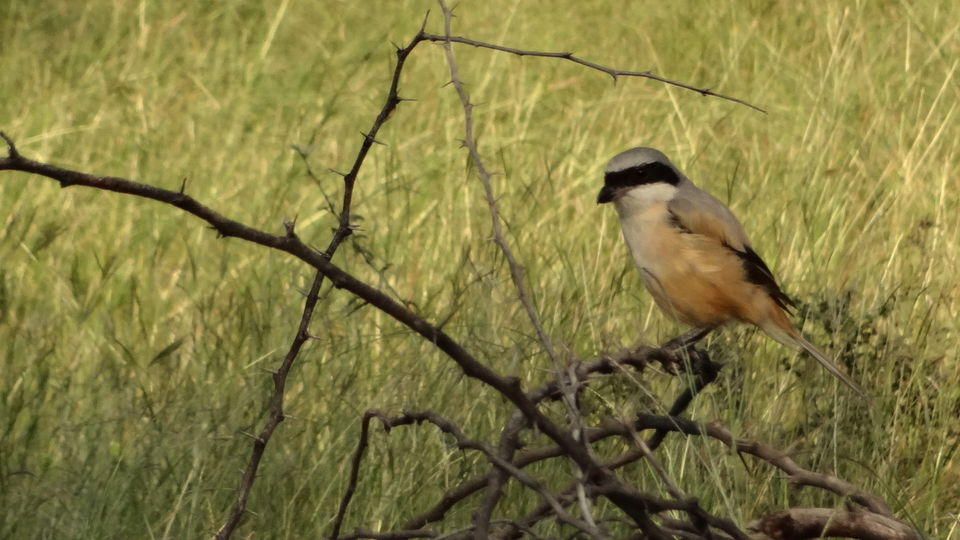
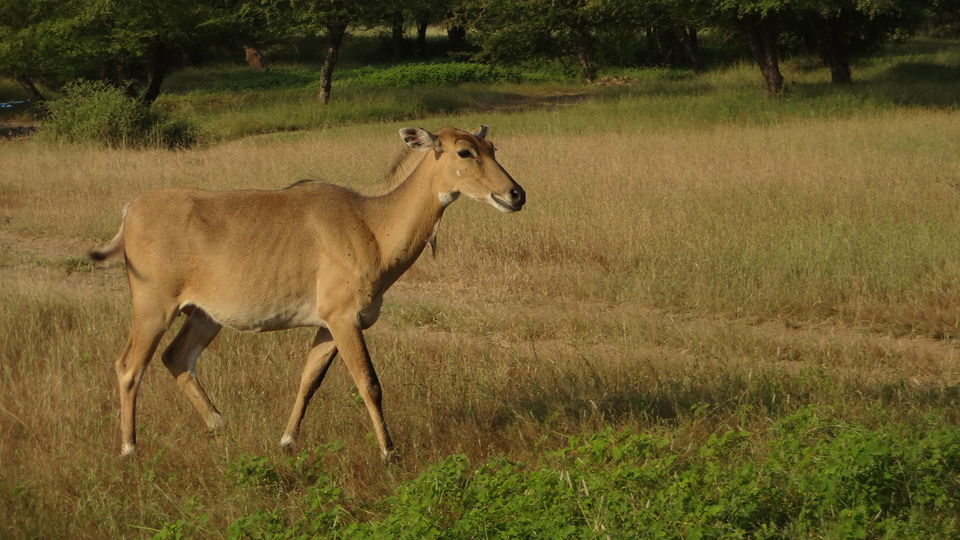
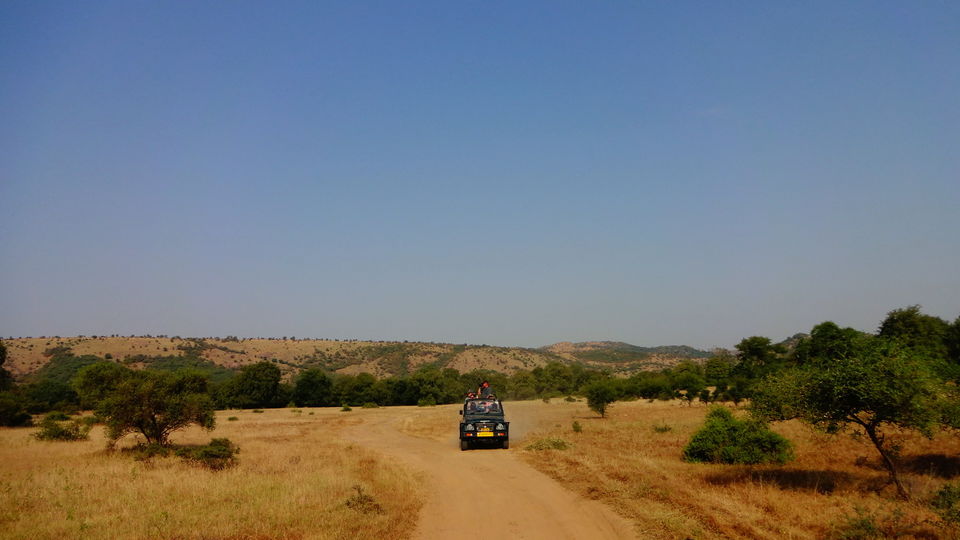
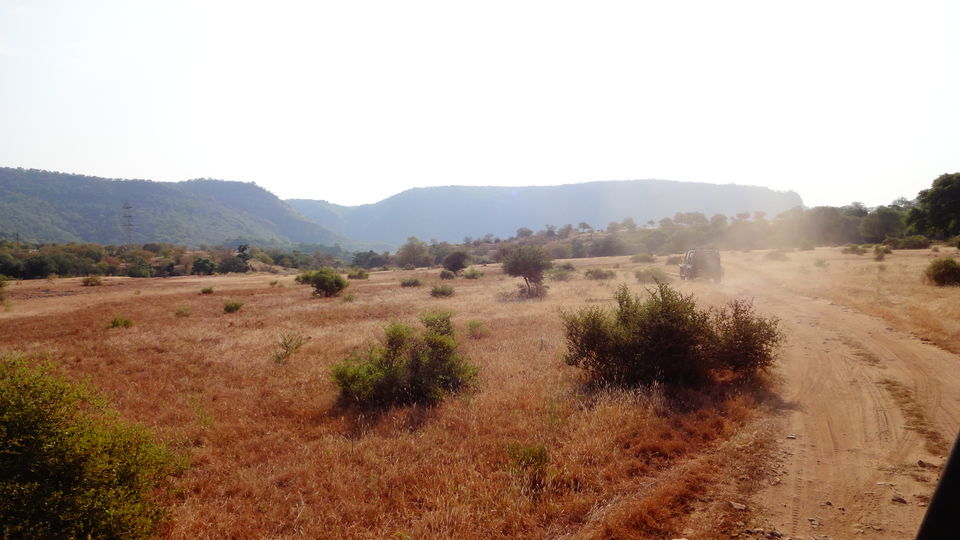
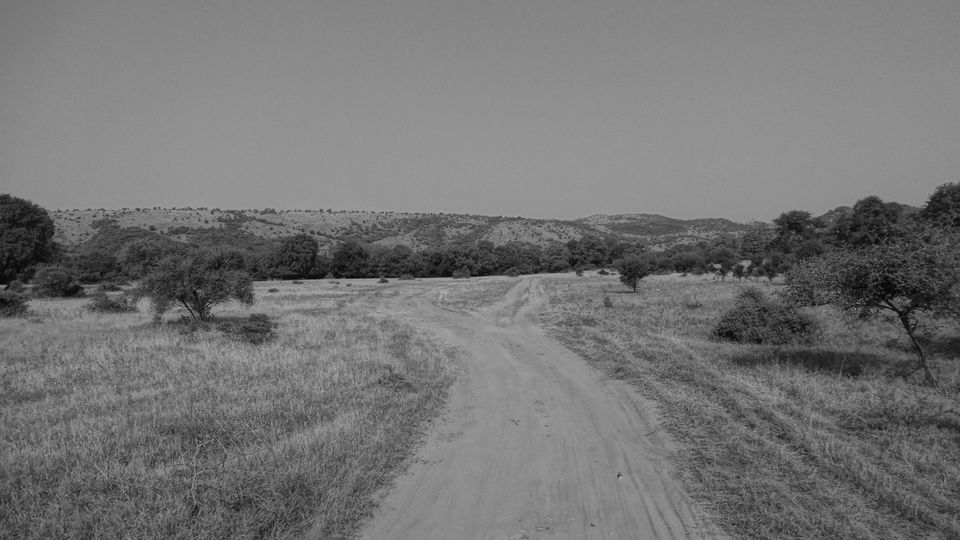
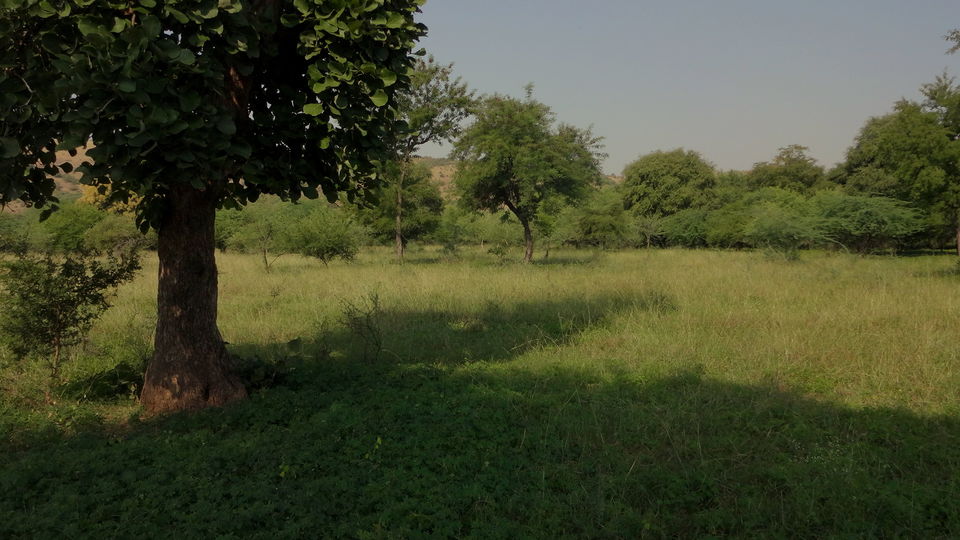

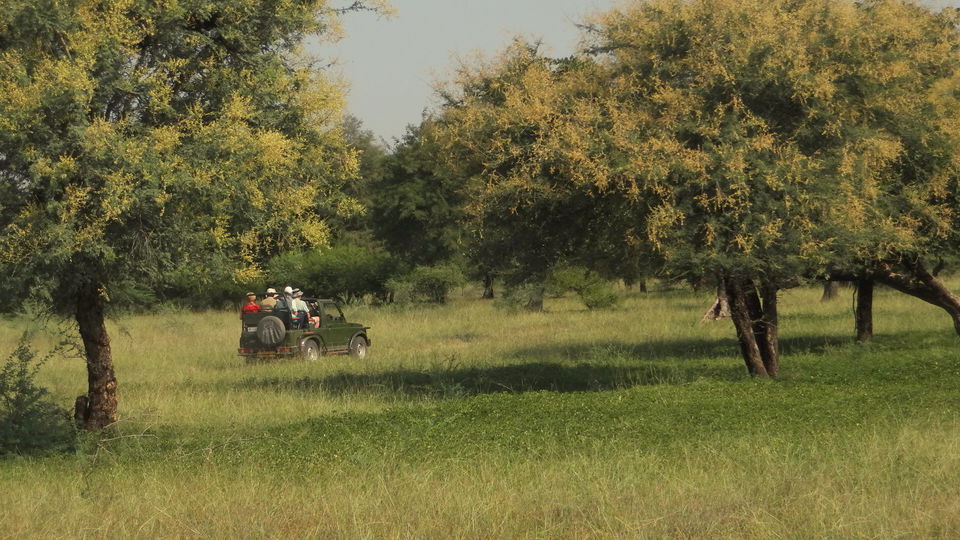
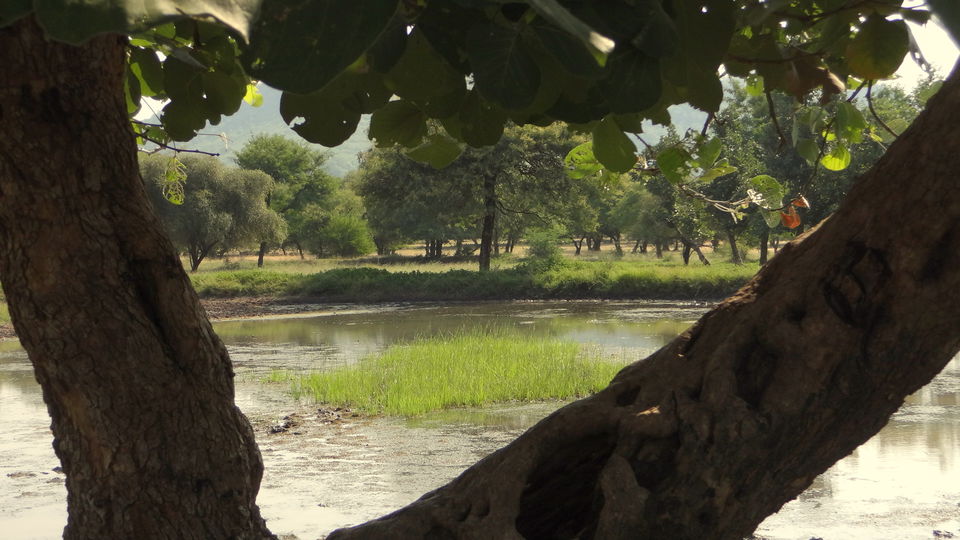
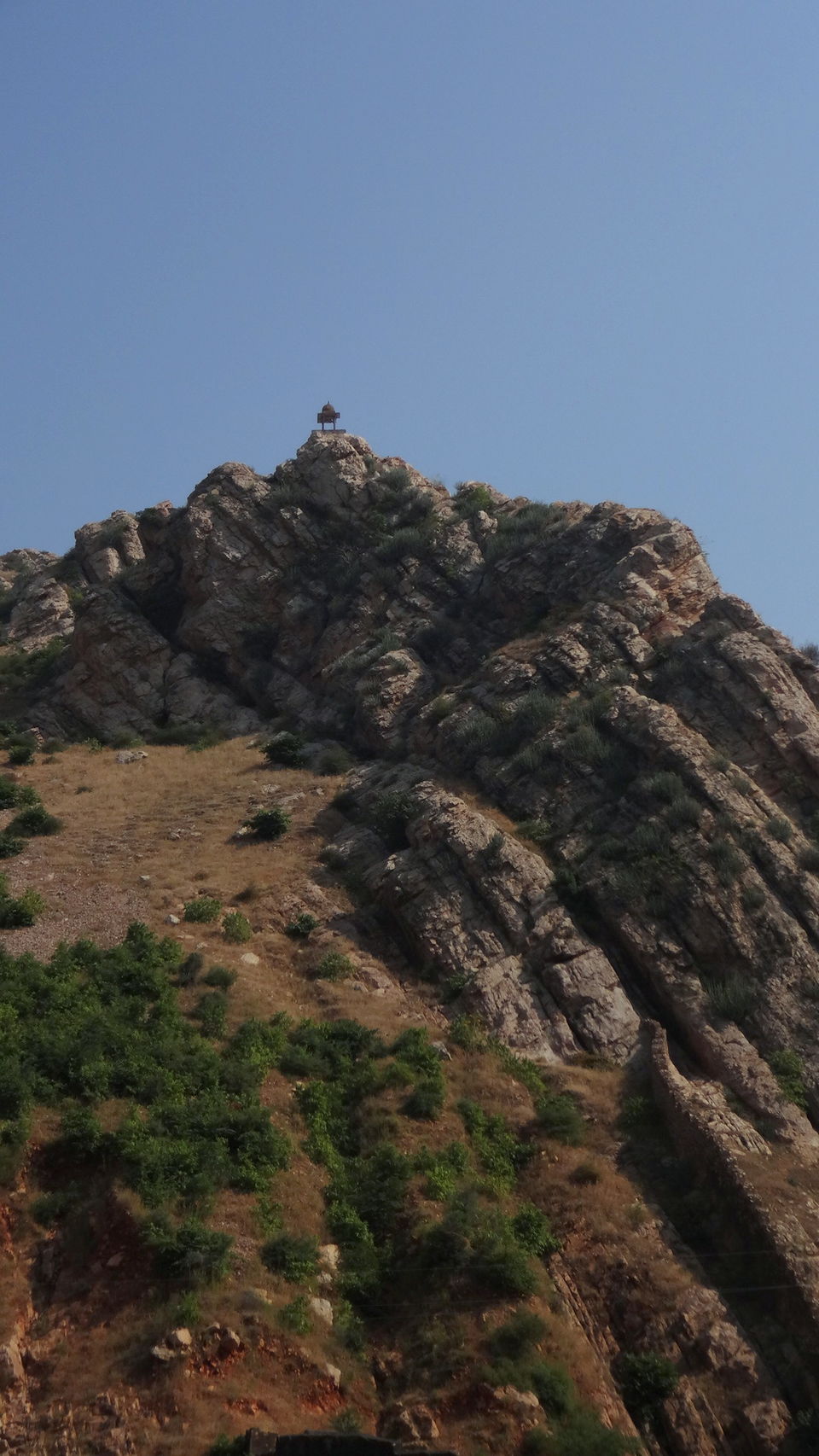
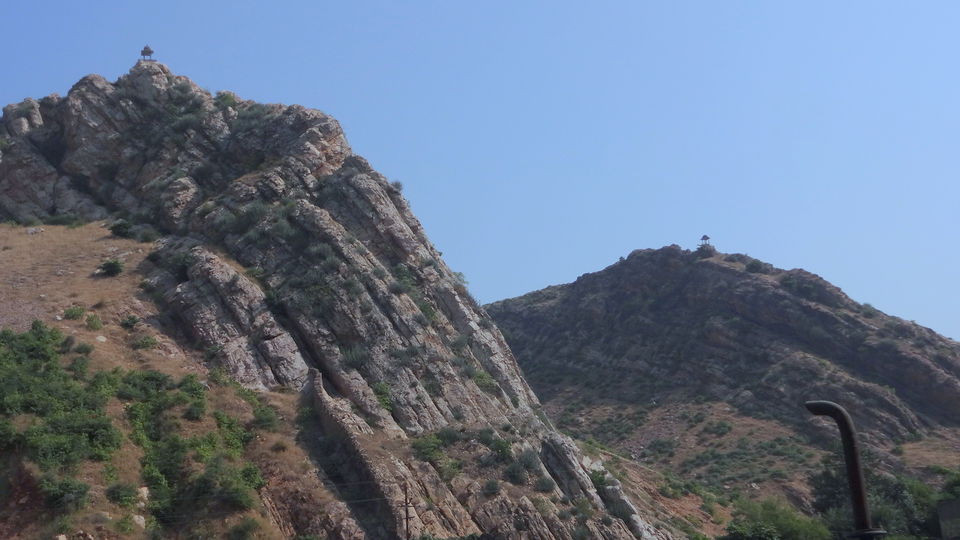
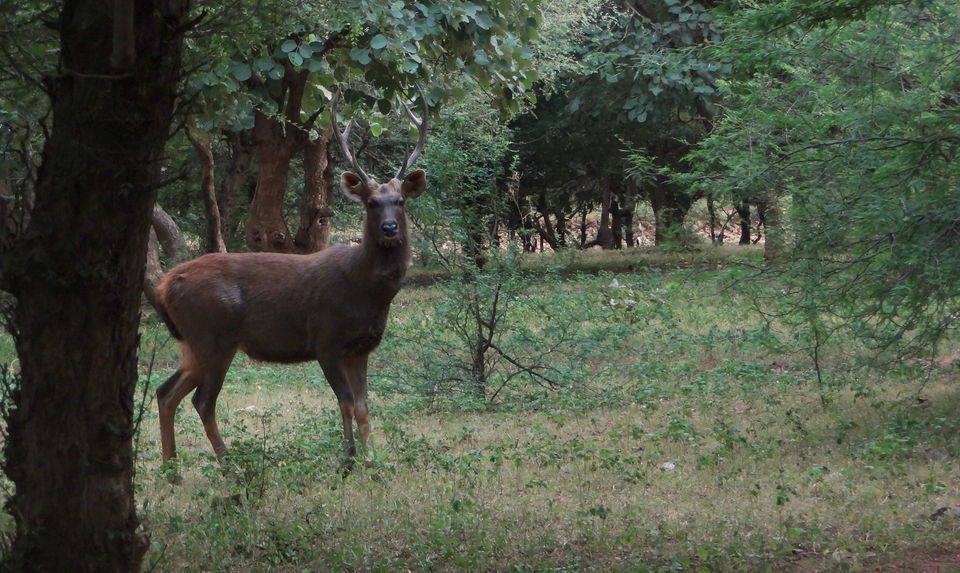
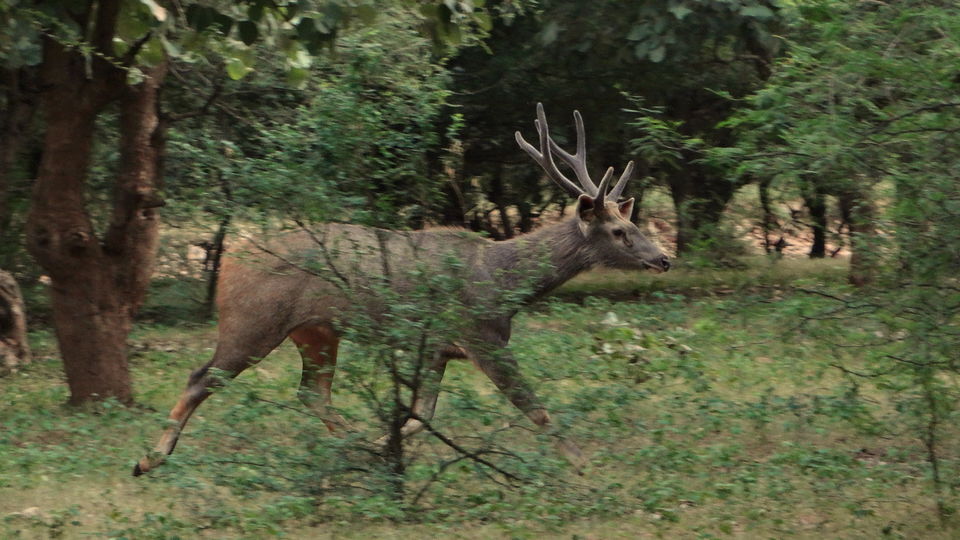
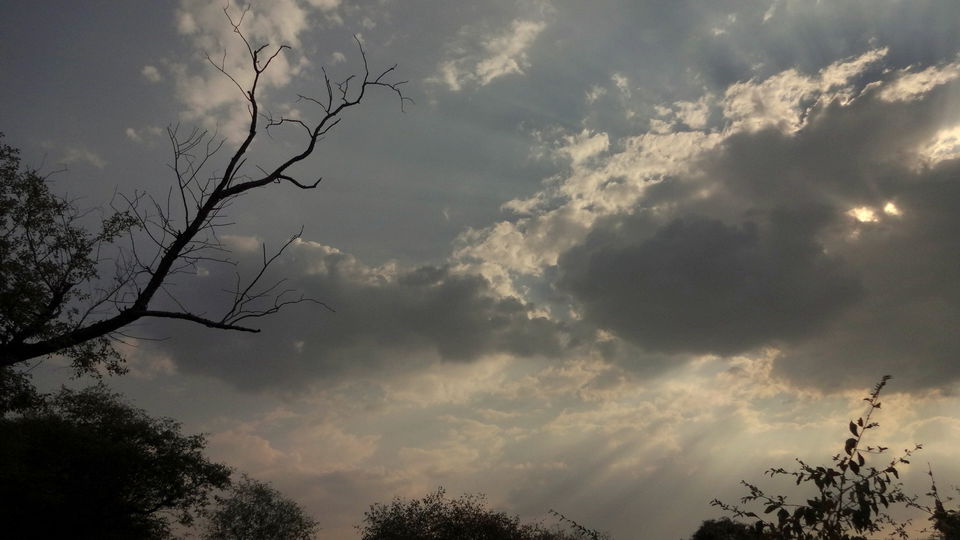
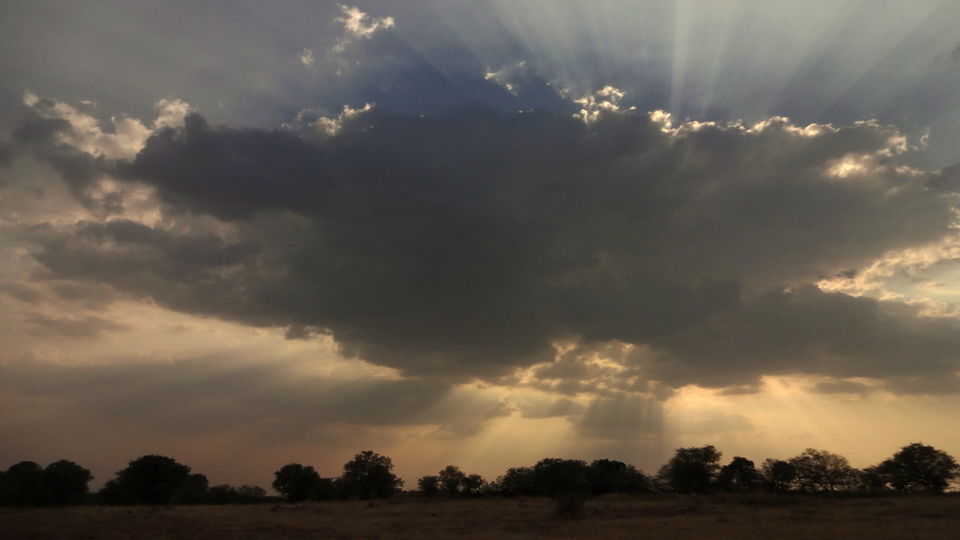
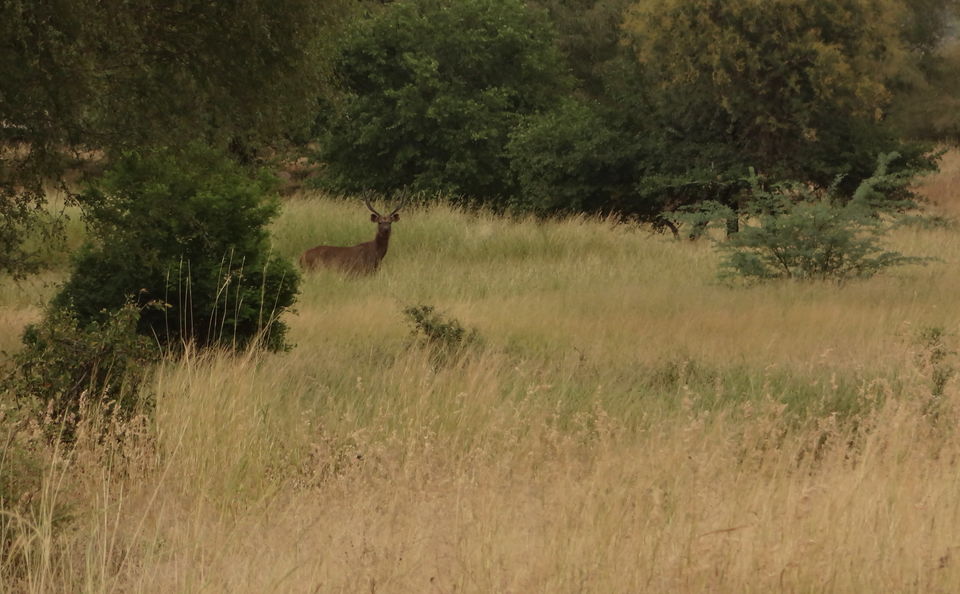
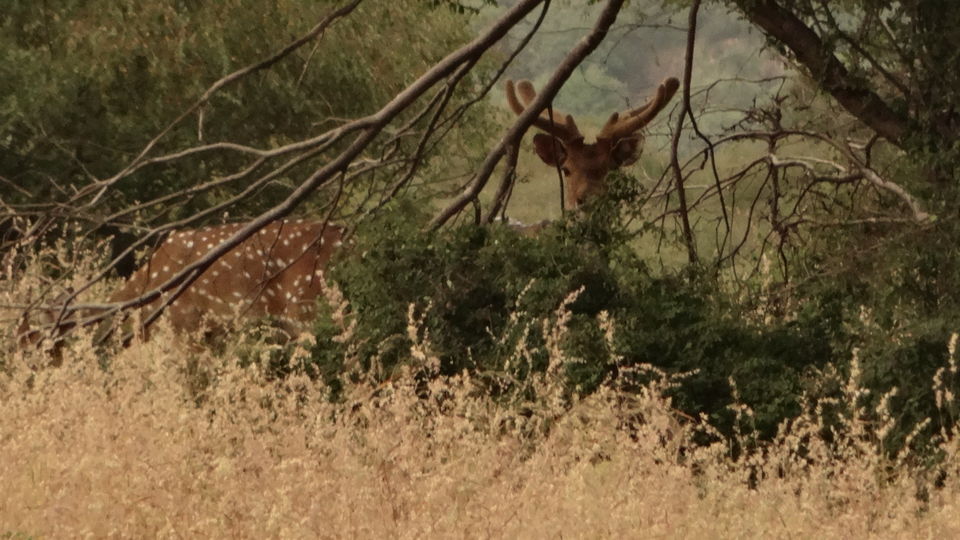
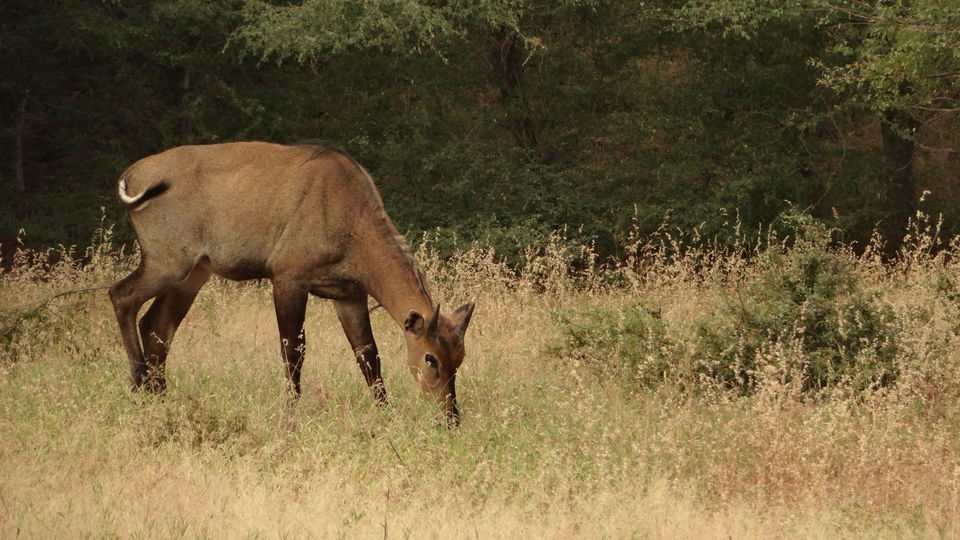
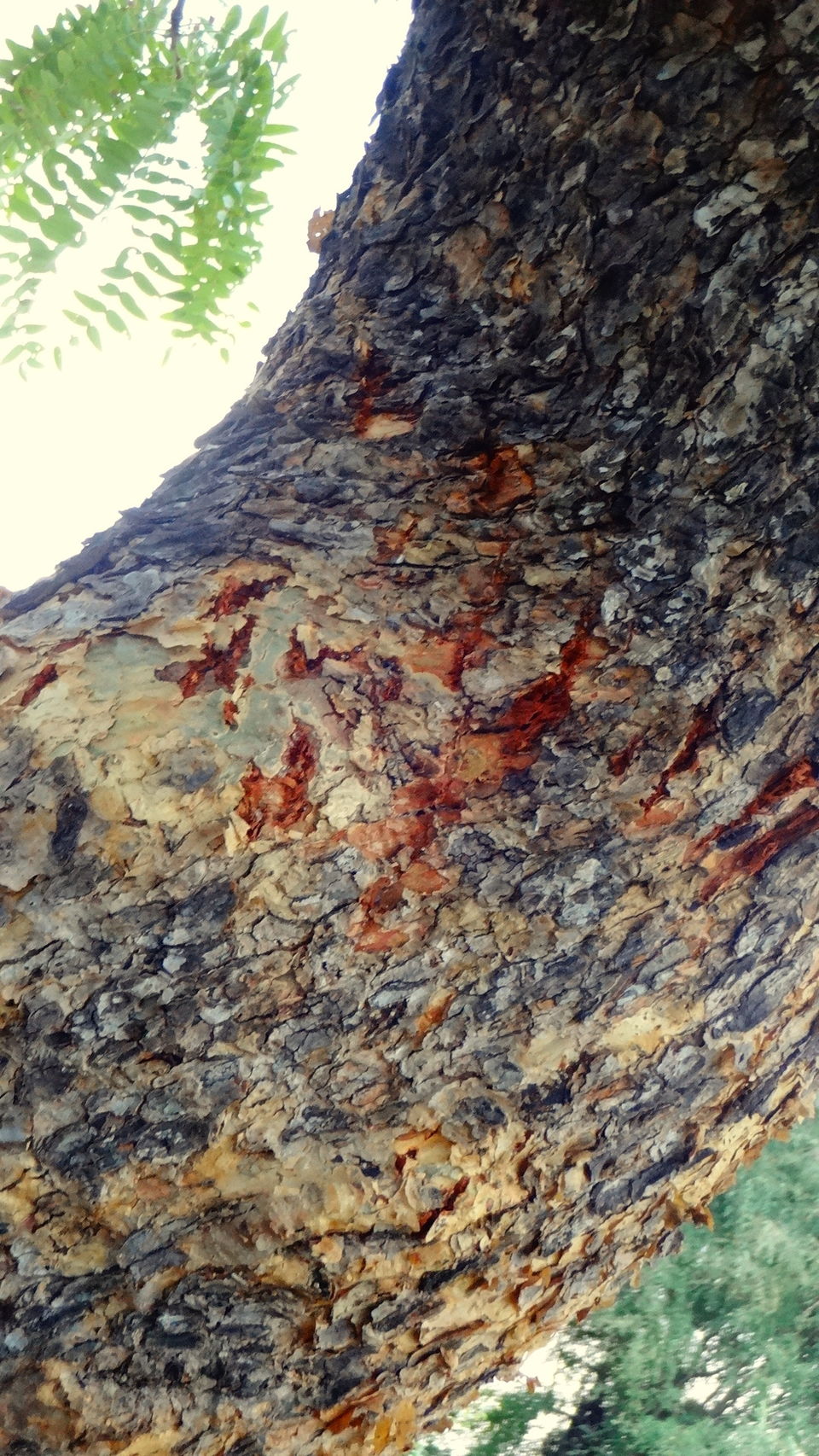
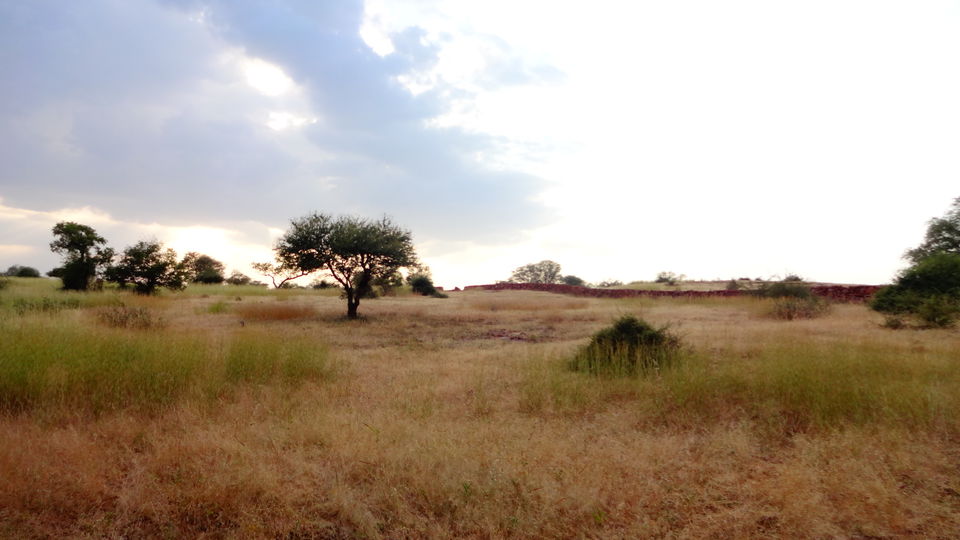
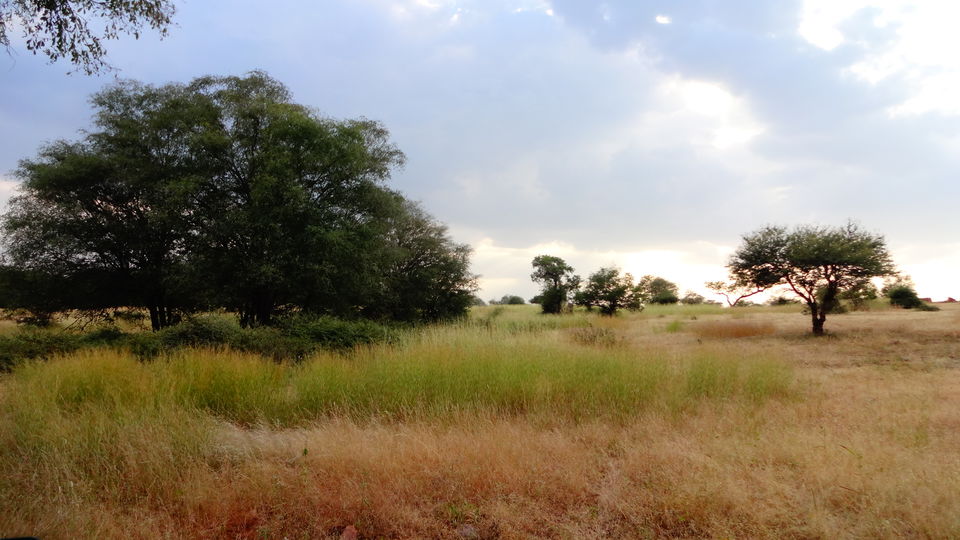
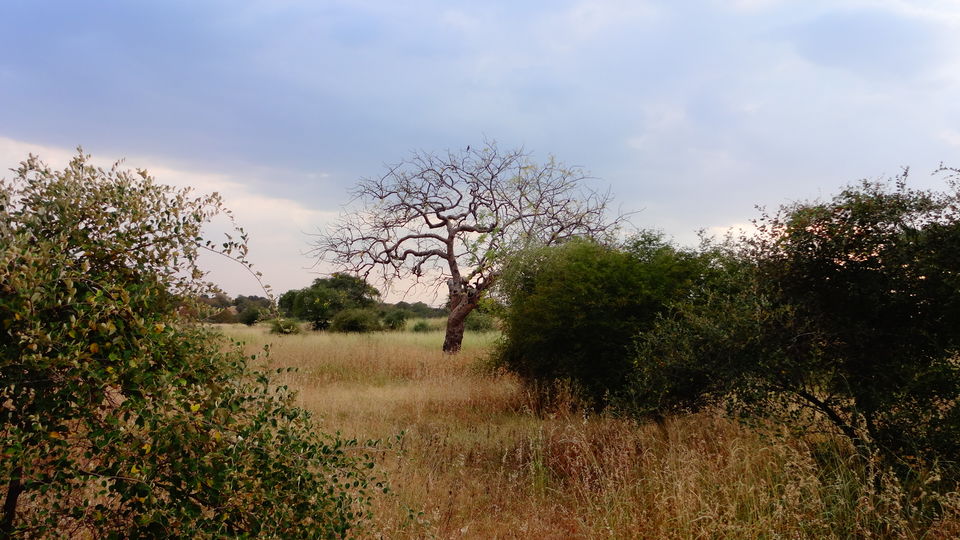
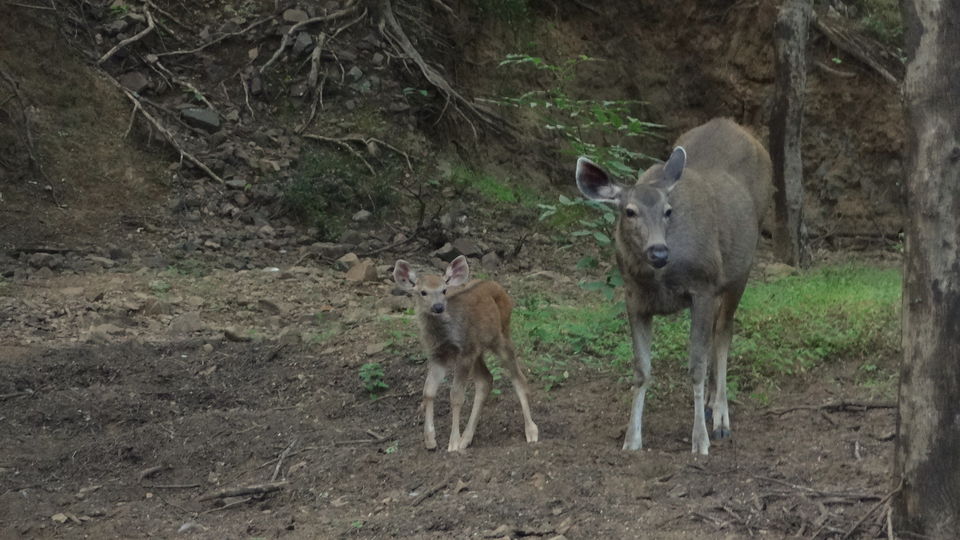
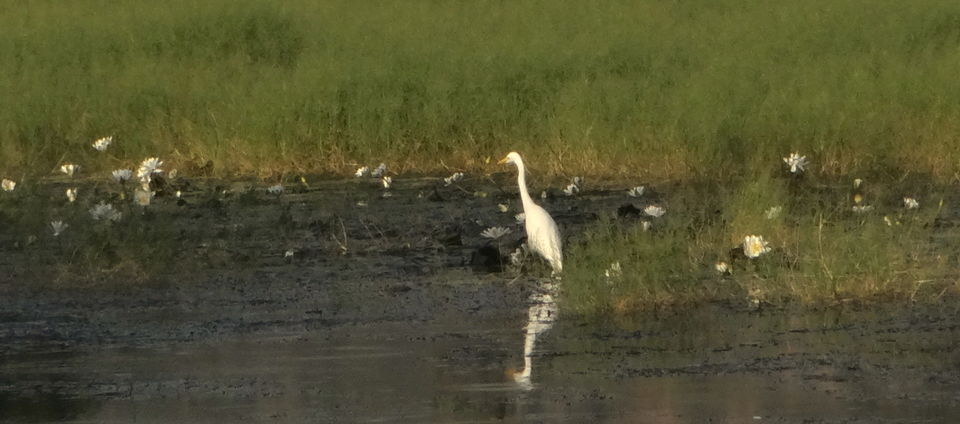
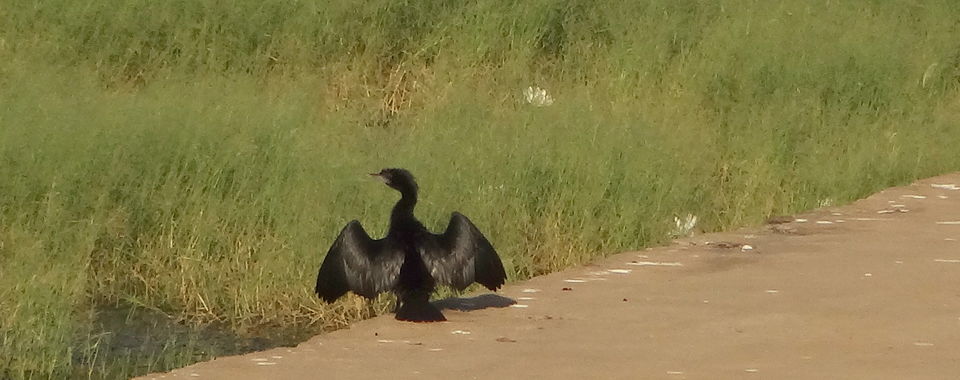
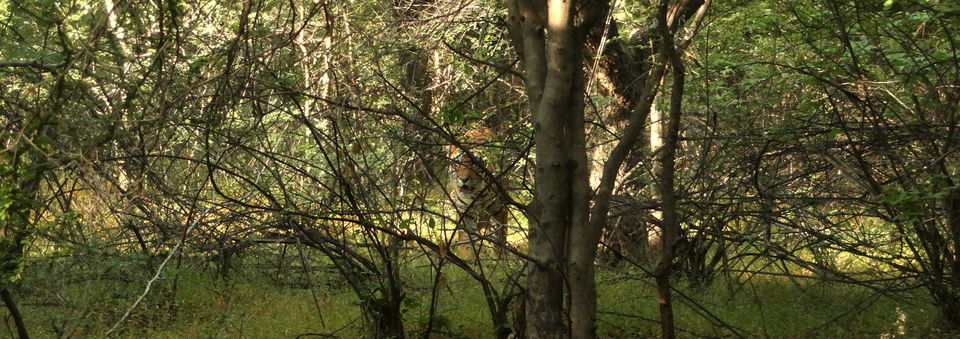
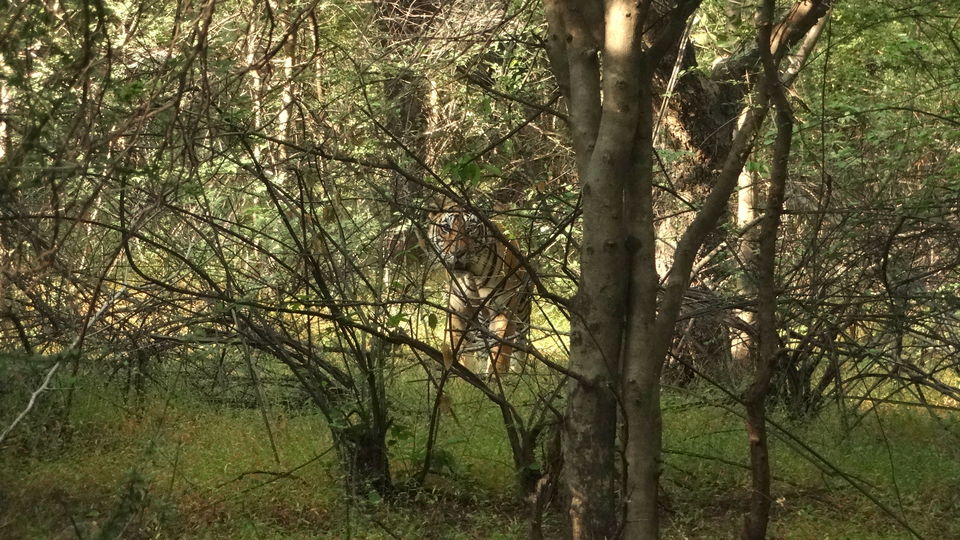
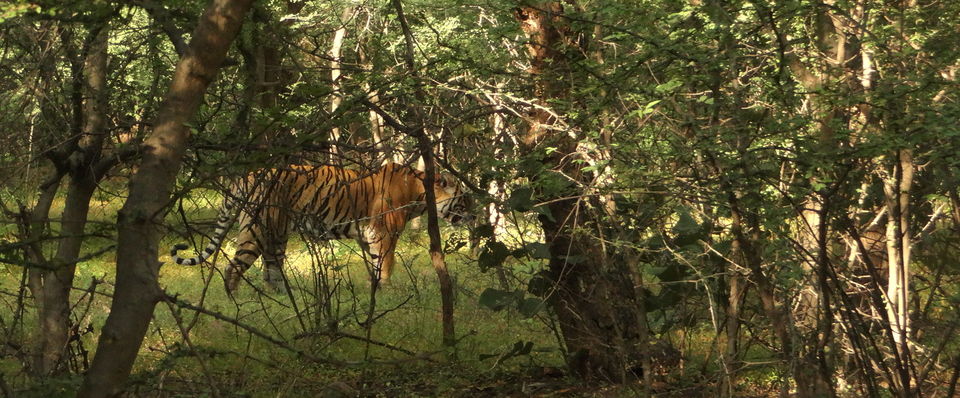
Travelling alone is a step everyone should take once in their lifetime. It will give you a glimpse into what you have been missing so far. It helps you surrender to circumstances, it helps you open up to others around you, it helps you observe like nothing else ever will. This trip to Ranthambore which happened very randomly only because I was desperate to go out on a long weekend; will be the most special trip in my 29 years of life. I thought writing down the entire experience would help you feel the calm I felt. I’ve edited the pictures to the bare minimum, not using filters etc. so that you can see exactly what I saw. I hope you enjoy this safari as much as I did. And get converted to a wildlife fan just like me :)
Fortunately I happened to travel with my co-passengers who were two single girls and a kid who was 13 years old. And all these people were traveling to Sawai Madhopur for the same Wildnest tour. Another sign of things falling into place. We got chatting, eating and sharing past experiences. And that’s when the girls decided to teach me the Buddhist chant of ‘’Namyo ho renge kyo”. For the next 10 minutes, all of us were sitting on one side of the compartment and chanting heartily. Of course we felt the surprised stares of our co-passengers who were mostly shy women in ghungtas or men who wondered if we had gone cuckoo in our heads. I determinedly started looking outside the window to avoid feeling awkward. It was a funny moment. Wonder what Buddha would’ve said! :)
After a long tiring journey of 15 hours, we reached Sawai Madhopur. A quaint, pink, typical Rajasthani architecture of the station greeted our eyes. For a remote location, the station was quite well managed. This is where we posed for our first picture together.
We were received by one of the hotel staffs who took us to our car. For the first time, I found myself face to face with a majestic gypsy. If I ever had to write a tagline for it, it would’ve been, ‘Majestically wild’. Open roofed, strong, macho, military green, this vehicle had a class about it and it imparted a certain class to the otherwise sleepy town of Sawai Madhopur as well. The journey in the gypsy was nothing short of a thrill for us. After this brief spell of excitement we checked into the hotel in comfortable rooms (I got my very own room!) to freshen up and eat some yum lunch. As excited I was to get my own room, meri utni hi vaat lagi hui thi. Okay, I am used to staying alone, but perhaps not so much at unknown places. Certainly not in a town known for dacoits. But then, that was a part of the thrill. In the evening we had a very elaborate photography session by Bharat who was our tour leader on behalf of WIldnest. A calm, young and well prepared guy, he made sure we understood all those complicated technical photography terms and got a hang of our cameras. Mine; being a point and shoot, I was perhaps not as excited about clicking pictures. But the tips shared were simple, easy and good to know. So I decided to give photography a shot (I had learnt and done some amount of it in my BMM days). Filled with excitement, we retired to our rooms to catch up a deep night’s sleep. Except that every bang, scratch, move outside would get my ears ringing and I would wake up in a jiffy. Not used to it, I told myself and after a hard try, fell asleep out of sheer fatigue.
Day One safari to Zone 2 and Zone 1:
The adrenaline rush begins to flow
Day one at Ranthambore stared early. We woke up at 5.30 and got to our gypsy by 6.30 AM. Ranthambore like most other national parks, works on connections. Here you have to know the right person, right guide and the right officials to get you into the right zones. We were lucky enough to get ourselves an entry into Zone 2, which was one of the top 5 zones at Ranthambore. Good.. the morning had started off well.
The journey to the zone was full of cold wind. We were unprepared and shivered in the early morning cold. As we entered the buffer zone, the cold became more pronounced and the air became fresher and crisper. Had always learnt about oxygen being essential to life. Now, I was actually breathing it.
The thing about Ranthambore, we were informed by our guide, driver and Bharat was that it is one of the few forests in India with topography and grassland vegetation that allows you to sight animals in a better manner. And so it was true. In the middle of forests filled with scattered trees and grass on either side, one could see up to a great distance. Even more exciting? You bet it was.
The first gentle animals to greet us were spotted deer who were bathing in the early morning sun. The sight was a pure delight. They looked at our gypsy with the air of something familiar. ‘Animals at Ranthambore are well accustomed to vehicles and visitors. They rarely panic and run away’, we were informed.
As we moved ahead, we saw yet another, fully grown Sambar deer, walking towards soaking in the sun. It was a pretty sight and my camera put in all the pixels it had to capture it for me.
The roads within the jungles were.. let’s say even worse than the roads of Mumbai. They were rocky and muddy paths running throughout the jungle. But the majestically wild gypsy glided effortlessly through them, oblivious to the jumps and bumps of its passengers. Experiencing the rough terrain was a dream fulfilled in itself. As our gypsy crossed the picture perfect ‘’gypsy goes from the middle of a river” terrain, we spotted a lovely common kingfisher bird. The little thing was too far, but my camera had decided to support me in my quest to photography, so again, it reached out to capture a few moments. As if it felt jealous, another blue bird (don’t remember the name) came on the same site to steal the Kingfisher’s glory (much like in Vijay Mallya’s life eh)
Throughout the experience was a dream come true. And the safari had just begun yet. There was more to come. We returned back to the hotel to catch some food and sleep as we had to move to another safari from 2.30 pm onwards.
Sultan of Ranthambore:
At 2.30, we punctually got to our gypsies, eager to be amongst the nature, yet again. The forests were cooler than the city, but the sun illuminated it beautifully. “Tiger is the noblest citizen of India”, said the guide, and very rightly so. “ We may meet Sultan, the tiger, “ our tour leader said. “ Khabar hai ki usne ek buffalo ko maara hai. The tiger never strays too far away from its kill. It has to be somewhere near the area where the buffalo has died” he concluded. Now I was starting to get nervous. Ok the thought of seeing a tiger was exciting. But the thought of actually seeing it eating its prey was scary and how. During our journey in the forests, we suddenly heard a squawking like sound. “It’s a peacock’s call. They give it when they sense that the predator is near”, Bharat explained in urgency and asked the gypsy to speed up so that we dint miss the sighting. As we got nearer to the area of the peacock’s call, we hear another deep amplified burp sound. It scared the wits out of me. It sounded so near. “ That’s the sambar deer’s call”, Bharat explained. “ Sambar deer’s call is the biggest confirmation of the predator being in the vicinity. You may even find the Sambar deer stomping his feet in anticipation of the enemy”. Sure enough, we arrived at the crime scene where a black stone like buffalo lay killed. There were two other gypsies in the area who were waiting for the tiger, Sultan. “ Woh paani peene Gaya hai. Ayega vapas” said the guide from the other gypsy. We positioned ourselves near enough to the prey to be able to catch a glimpse. I could feel the air change from hot to cold. The atmosphere was tensed. Any moment now. A foul strong smell drifted towards us. Surely, he was around. But where? We craned our necks. Sultan was clever. He had decided to lie low as he had already seen gypsies watching him. Perhaps Bharat realised this, so he asked the driver to take the gypsy further ahead into the forest. Further deep, we encountered a beautiful site with a lake gracing the scene. There were little dove ducks, the grey heron and grey whacktail, owl and peacock. The birds that caught my fancy and got captured into my camera. Bird spotting was fun. I was getting to slowly recognize them
The gypsy then turned around and reached the location of our kill. There were even more vehicles in the area. And to add to it, villagers walking along the jungle path. Apparently walking in the jungle disturbs the wildlife to no extent. Thus, passengers are forbidden to get off their vehicles. Only the guides can get off, and that too, to pick any litter that the passenger might’ve thrown. Litter and garbage tend to harm the animal food chain.
We waited for a bit to spot Sultan but the chances seemed bleak. Most people seemed to realise it and turned away in their gypsies. We were one of the last ones. As we went ahead to take a U-turn, we saw.. a golden yellow furred tiger walking parallel to our vehicle. Even in the dense vegetation, he was visible. It was Sultan. My heart raced. My camera raced with it. And after giving us a fleeting glimpse of 2 seconds, Sultan vanished from the scene, leaving our hearts beating faster than ever before, leaving us wanting to see more of him, more than ever before.
The heart did not want to leave. But the time for the safari was nearly up. We left and headed back. On the way back, captured some images of White drum vultures above a cliff. It was eerie. Captured a few deer in their natural habitat and ended the session by capturing a haunted picture of the moon which had just peeped out in the sky to tell the sun, hello, it’s my time now.
Day 2: Zone 6 and Zone 8
Heart racing moments and heartlands:
Once again at 6 AM in the morning, we set out to explore a beautiful zone, Zone 6. Sure enough, entering the place was akin to entering grasslands of Kenya. Beautiful shades of green spread across your line of vision, got accentuated in the gentle sun light that streamed through. The scene itself was so breath-taking, that for a moment we forgot we had come to spot animals.
I for one, understood that I underestimated India even more than I thought I did. If this was just one wildlife national park, I wonder how gorgeous the others would be. As the gypsy drove around in the area, we once again spotted the gorgeous sambar deer and a nilgai basking in the morning sun. The light filtering in through 5-6 ft. trees, made the scene even more enjoyabl
Soon thereafter we heard a strained sort of a shout. We were informed that was the call of the monkey. Again a sign of having the predator around. At the same time, the peacocks started calling. And to my own delight, I even recognised the call. Oh wow! I was getting educated! We excitedly drove along the direction of the call and found more gypsies waiting for the spotting. Yes, there were pug marks nearby and the tigress (who was spotted by those visiting the zone yesterday) had to be nearby. We waited patiently. This time, fear turning into clear excitement. The calls continued but once again we were deceived.
We continued our journey in the zone, deeper into the heartlands. The scene everywhere I looked was picture perfect. What do I say.. you have to see it to believe it
While we did not spot any tiger, we did see it mark its territory on a tree. Apparently, whenever a tiger has to mark its territory, it leaves behind pugmarks everywhere. Larger the territory, larger the selection of female tigers and prey it gets. Larger the access to water bodies and other resources. Of course there are challenger tigers, who from the pugmarks can make out the age and strength of the tiger who’s pugmark it is. I learnt that tigers do not kill their own except if their cub is dead. They do not leave a proof behind of the cub’s death as it means vulnerability of the other cubs to the enemy. The tigresses train their kids for around 2 and half years and are largely protective about the cubs. The fathers keep in touch occasionally but a challenger who tries to woo the mother usually kills the cubs from the previous father so that it can rule the territory on its own. Strange but how it resonates with human egos and thinking.
Day 3: The universe conspiracy theory at Zone 5
This was meant to happen. As soon as we entered zone 5 on Saturday morning, within 10-15 minutes our guide spotted pugmarks. ‘’Yeh kal nahee tha sahib” he said gleefully and egged the driver to speed up in the direction of the pug marks. Something told me we won’t be disappointed. Sure enough, just 5 minutes away from the pugmarks, we encountered a tiger walking parallel to our gypsy. He saw us and stopped and looked towards the vehicle. My heart jumped with joy and so did everyone else. This time my camera was prepared. We clicked to glory as the tiger made its way towards us. With the impatience of a road crosser on a busy Mumbai street, he quickly jumped across the road and made his way to the jungle on the other side.
There were deer on the other side but they did not run immediately. ‘’They are challenging the tiger”, Bharat explained. “They are telling him, we have seen you. But as soon as he makes a movement towards them, they will run. Running away from a tiger is as good as challenging him. So if you ever encounter a tiger face to face, never run. Stare back”. Sure enough within moments we had deer galloping in full speed from in front of our gypsy.
This moment, was the biggest and best moment in my safari to Ranthambore. I was blessed with spotting a tiger in its natural habitat! I would never forget the moment and the camera would never let me forget it either. Even though it was time to head back home, our faces erupted with smiles! Ranthambore had somewhere deep down changed me as a person. Seeing the extreme wildlife consciousness of the locals at Sawai Madhopur, learning about how animals were absolutely the most non interfering species ever, seeing them enjoy their natural habitat and drinking in the unseen beauty of nature had refreshed my mind beyond anything. I felt closer to the universe and I felt truly connected even though I was alone.
The best part about travelling alone was that I was able to pay complete attention to detail. There was no one who wanted me to do anything else. There were times I sat quiet for hours in the safari and no one would ask me why. I would be looking around and simply breathing deeply or sometimes, clicking pictures. But I was on my own. Just me and me. It was a lovely place for self-discovery. Of course I met new people and made new friends. From harassing the kid about his future girlfriends to laughing on stupid jokes with my fellow travellers Deepika and Ashmita, every second was worth it. And to make it all picture perfect, I met some amazing co-passengers on my way back to Mumbai as well. We connected and spoke as if we had known each other for ages. Social good, personal problems, Modi and much more. I may have spent rupees 20,000 on this trip (which is extremely cheap by the way), I had still returned back home much much richer.
P.S: Planning to order books on wildlife from Flipkart. I want to be updated and much more prepared before I book my next safari :)


